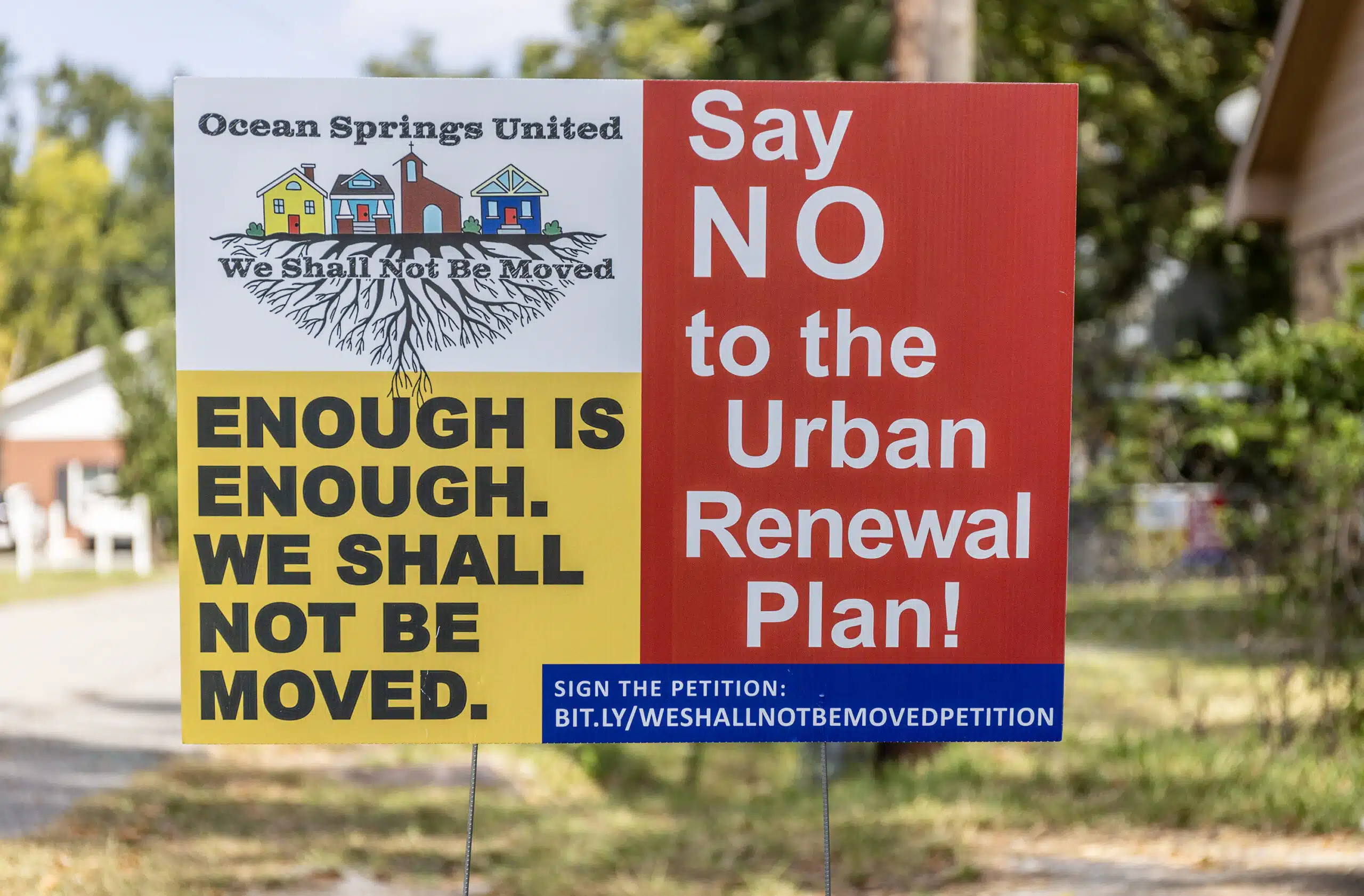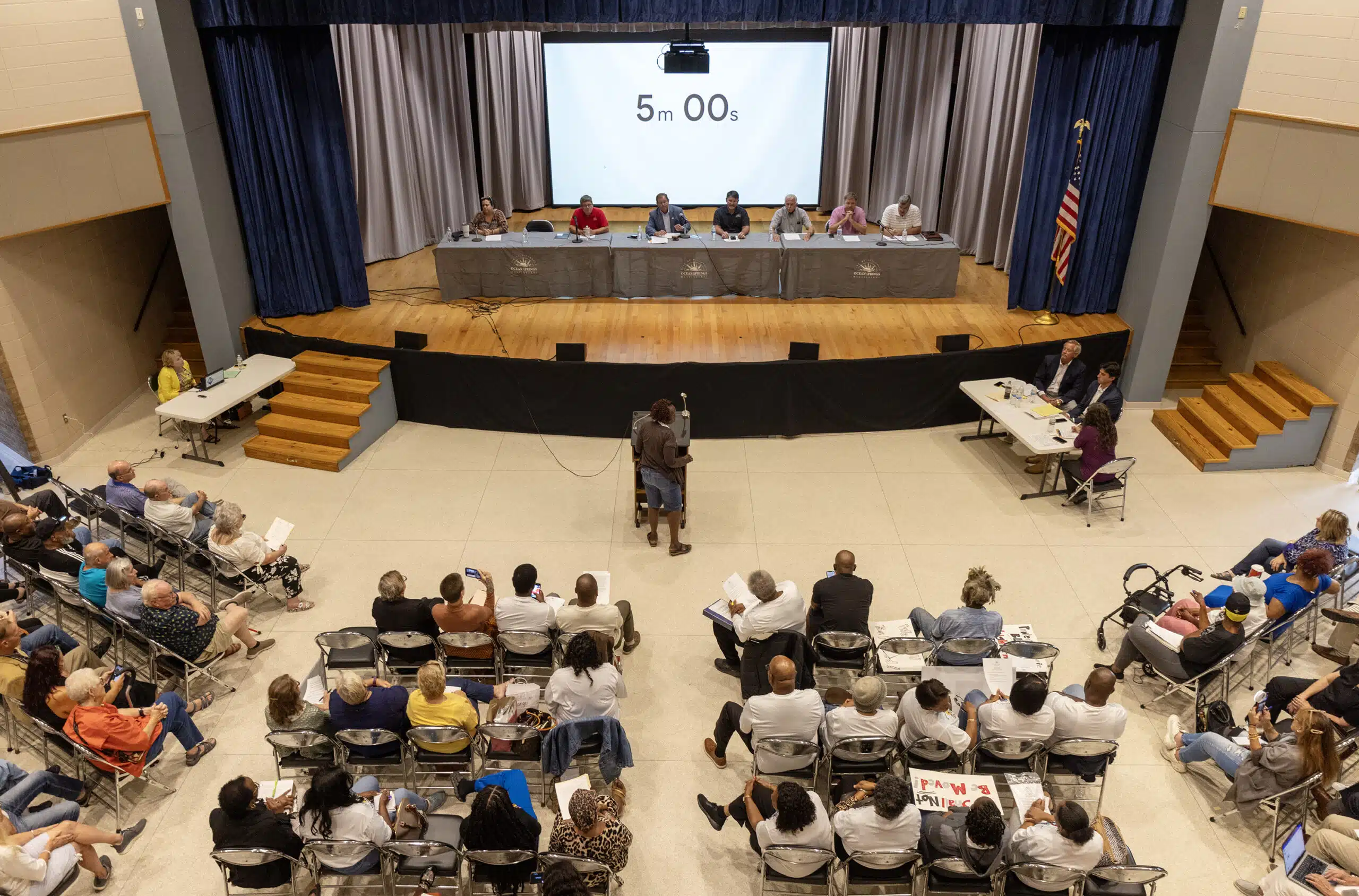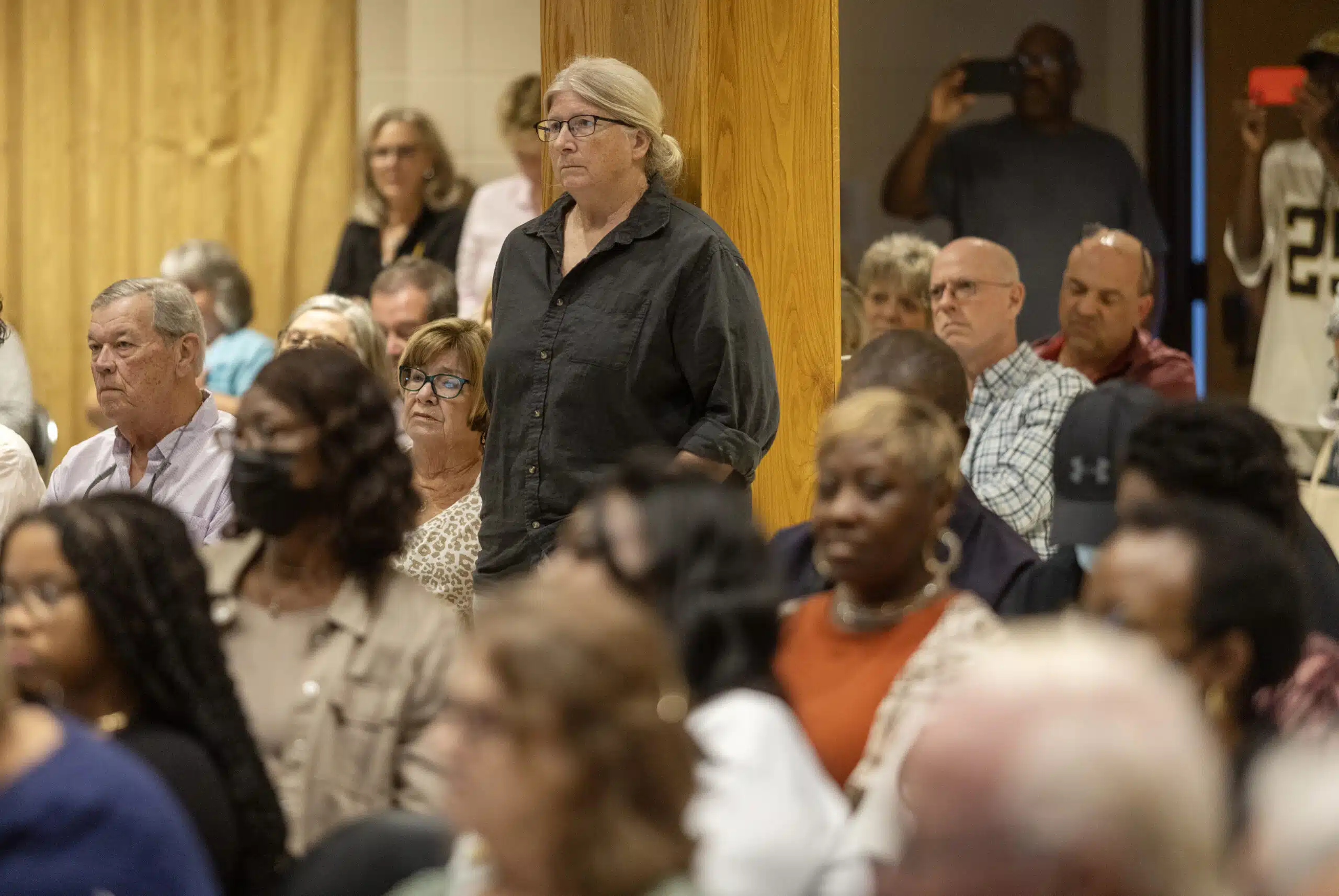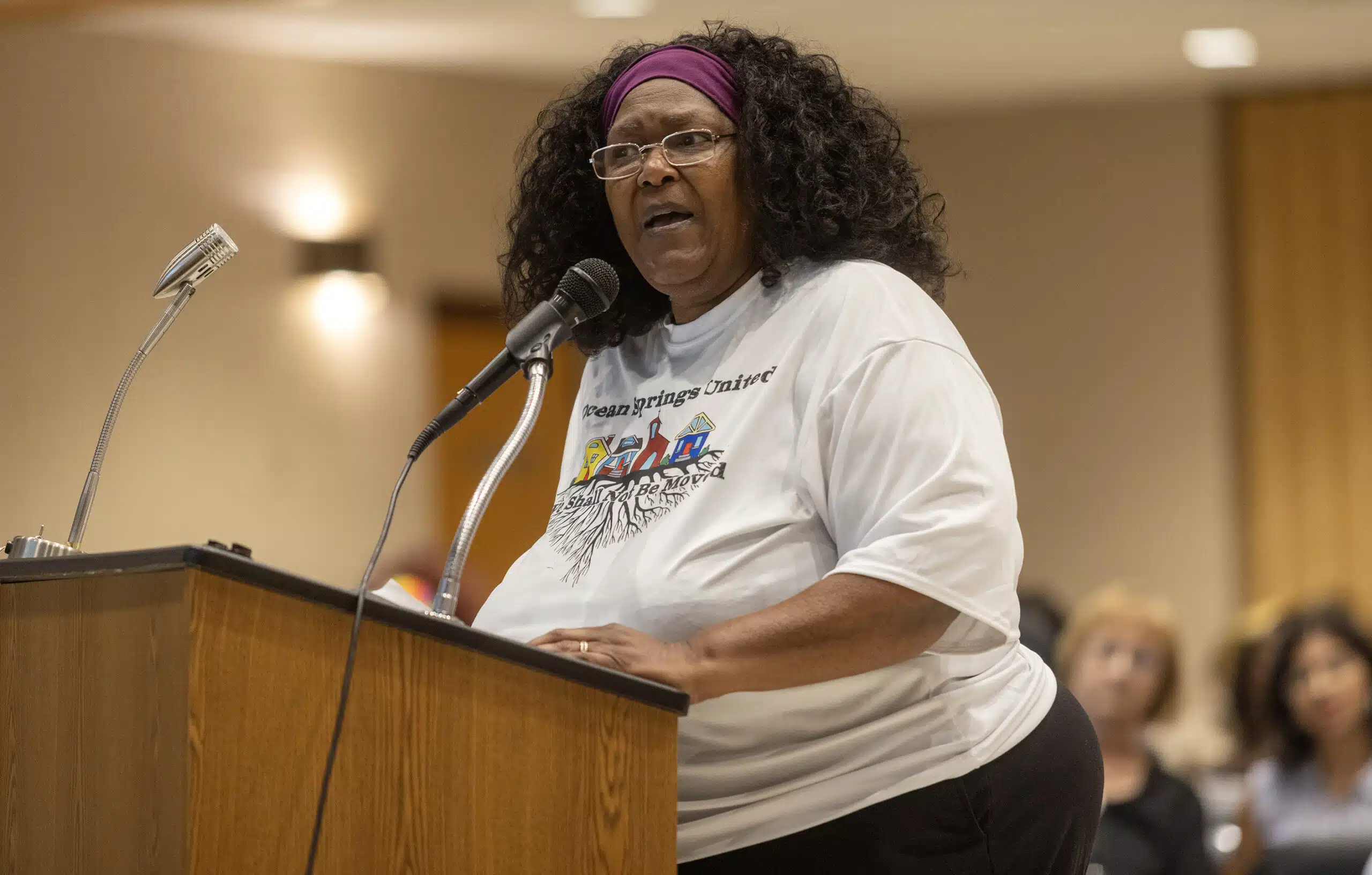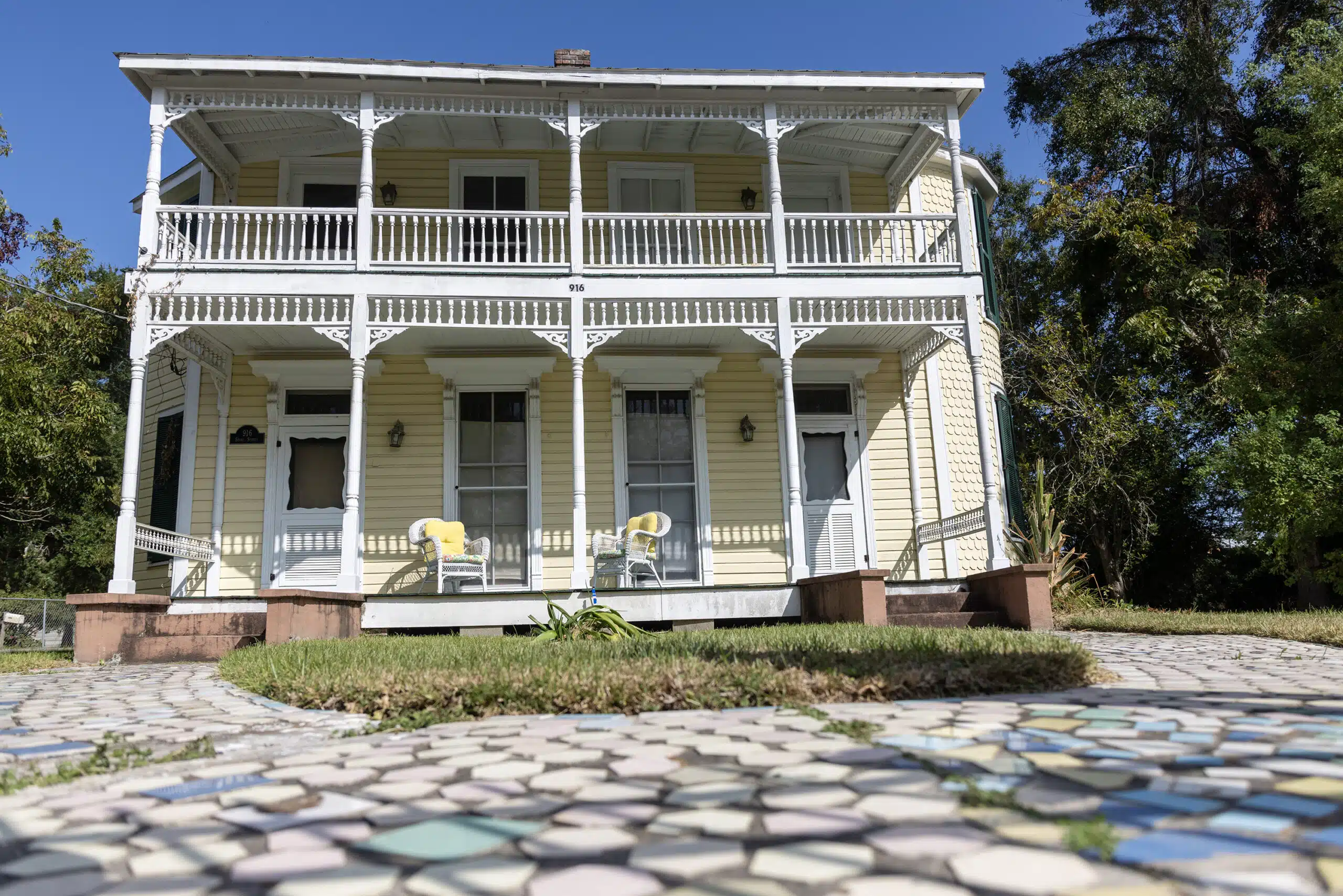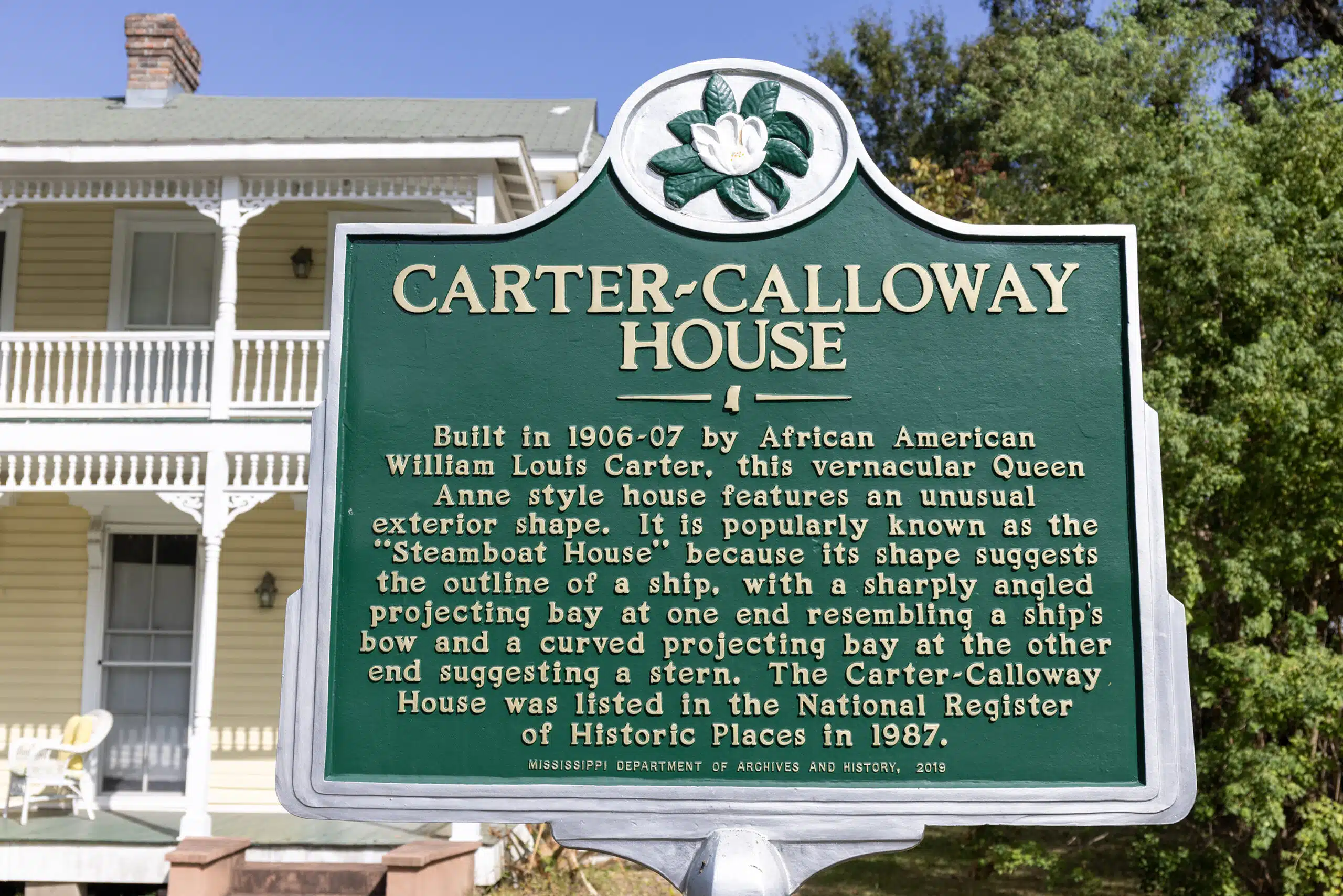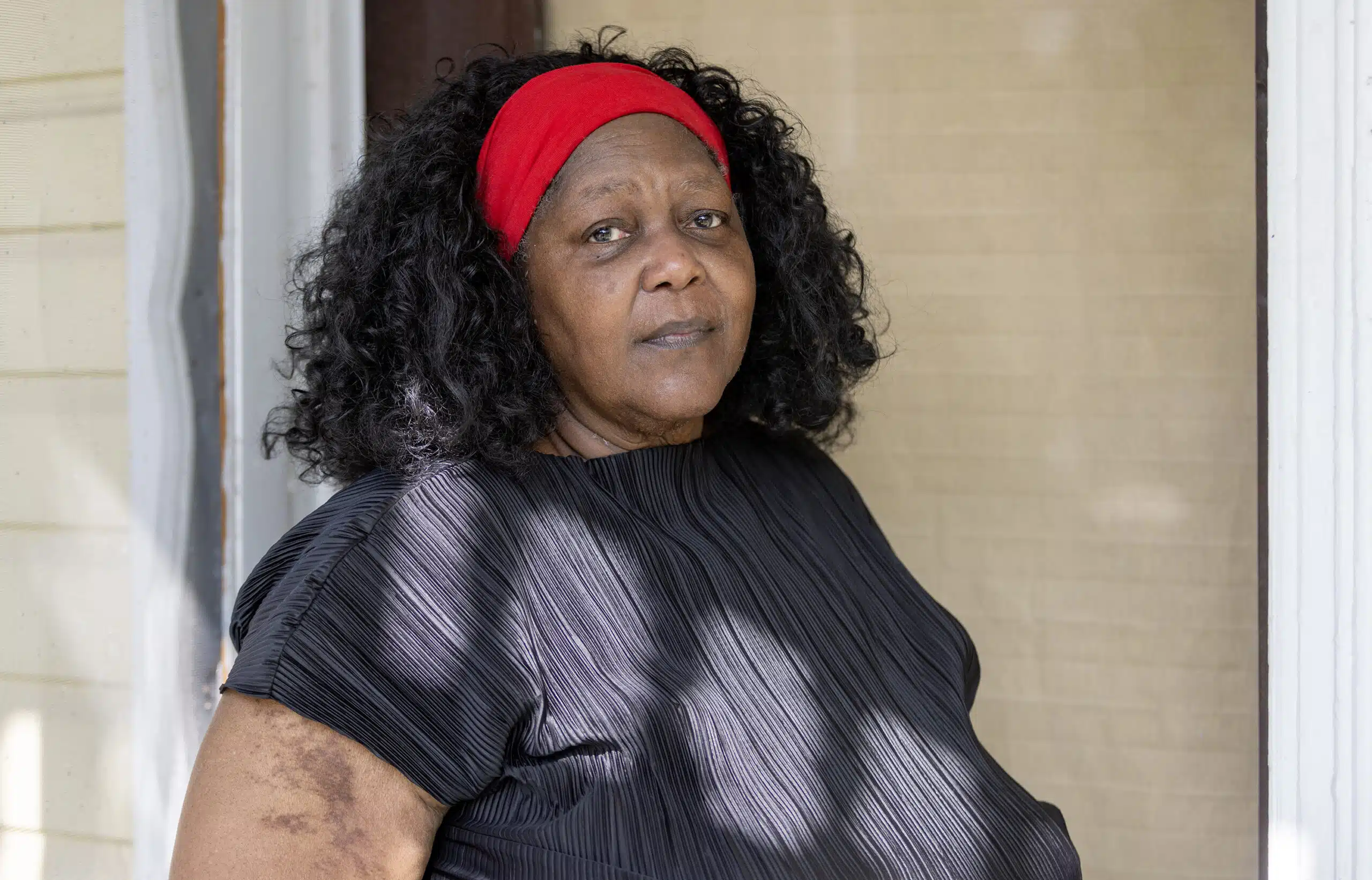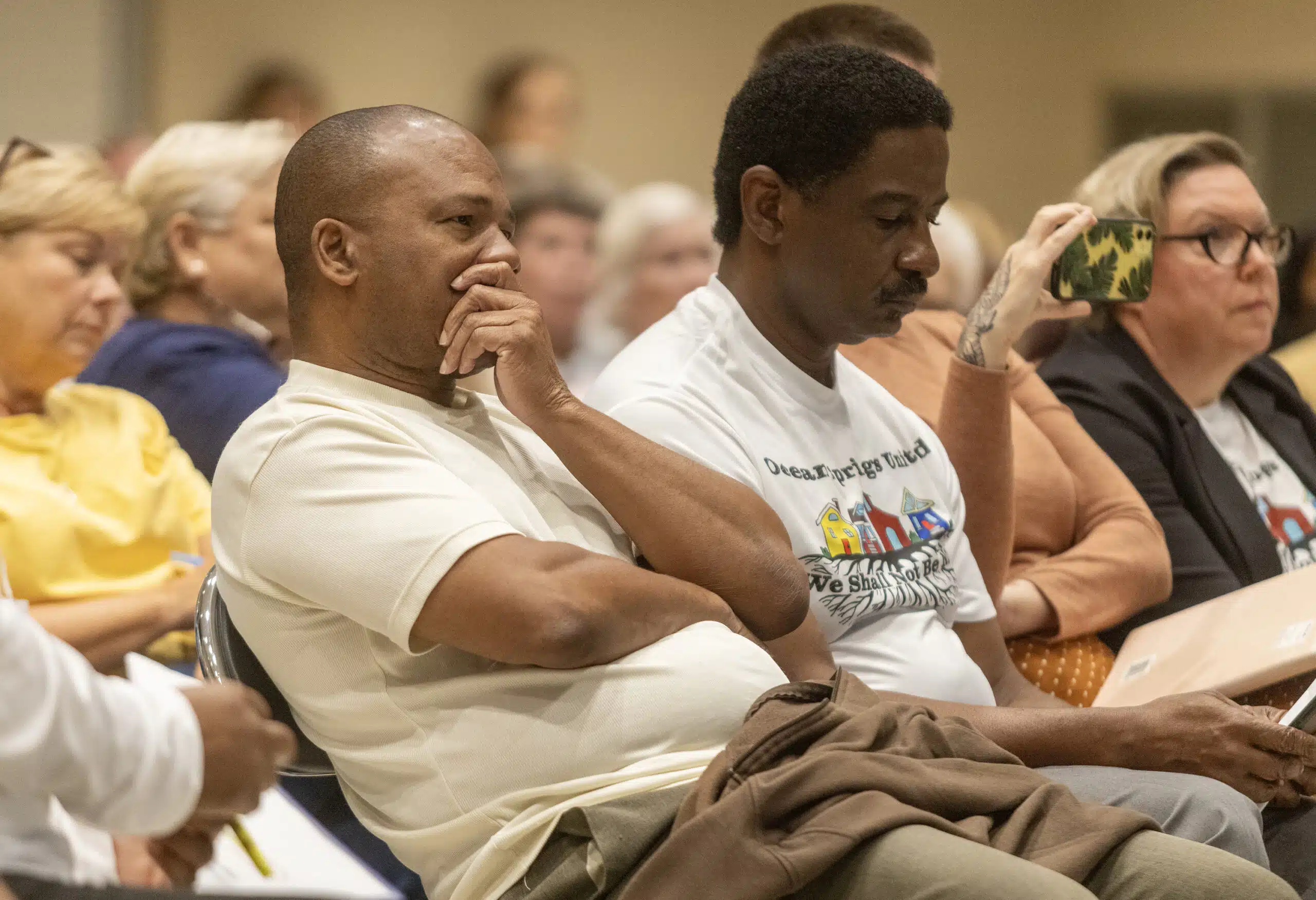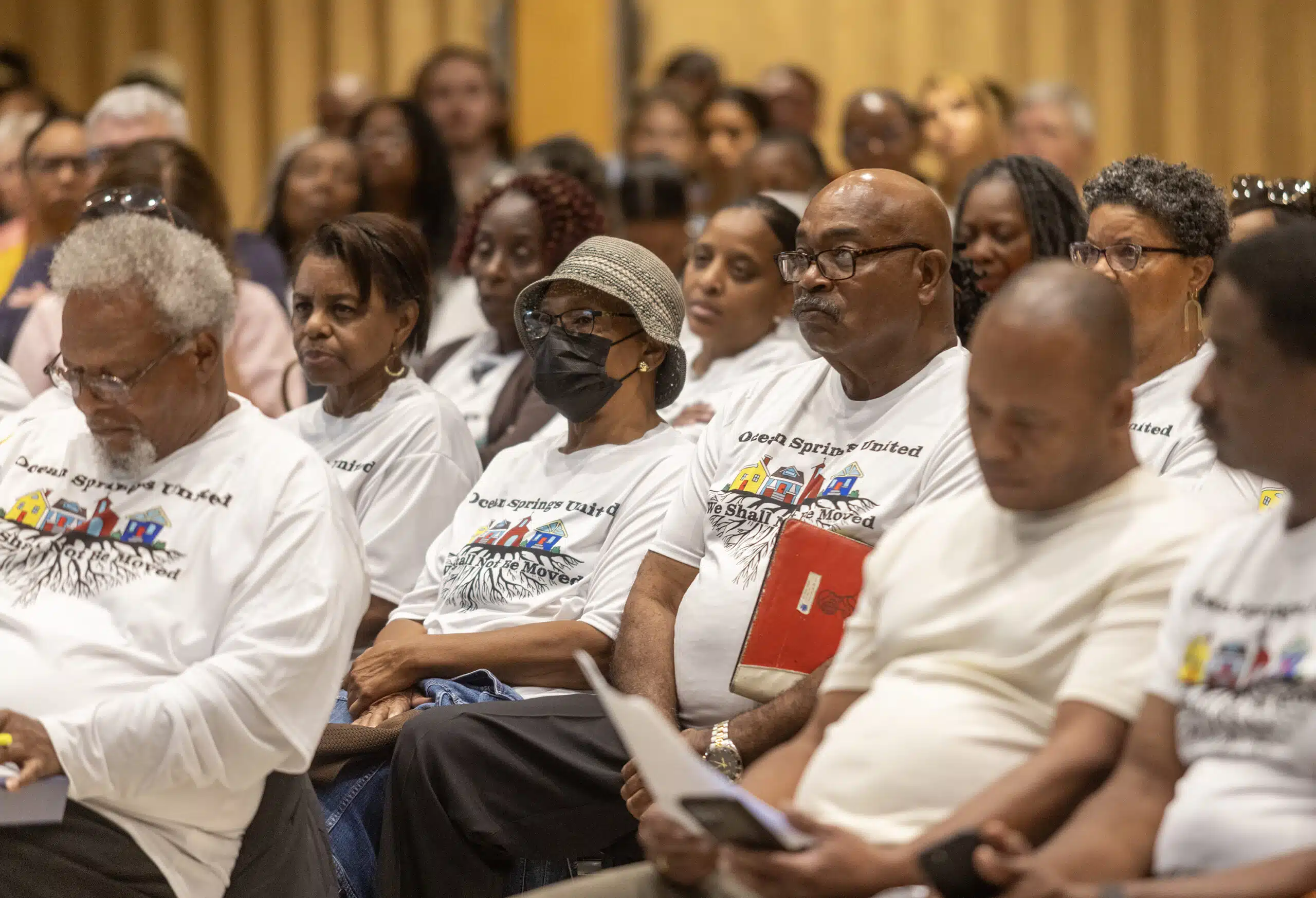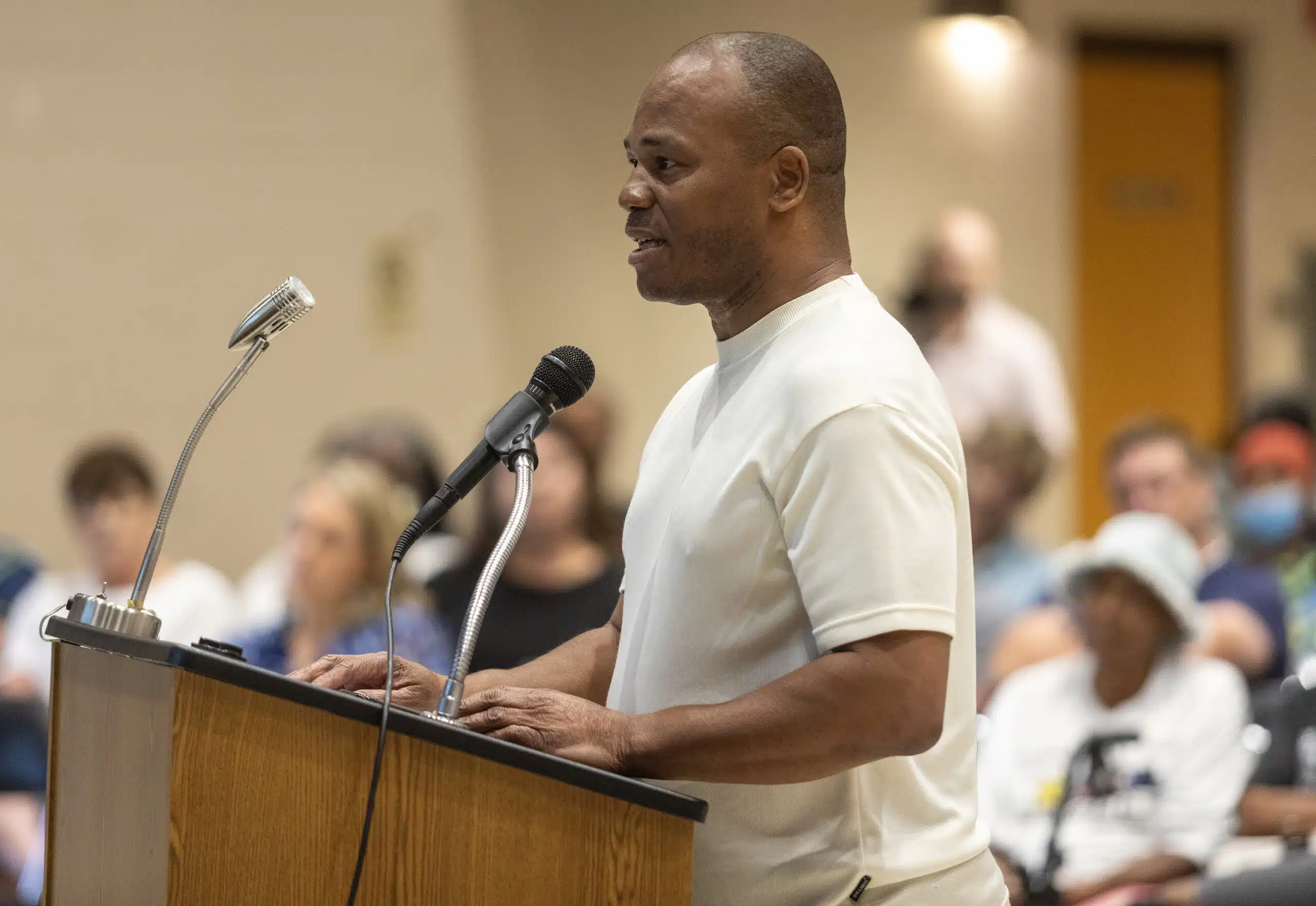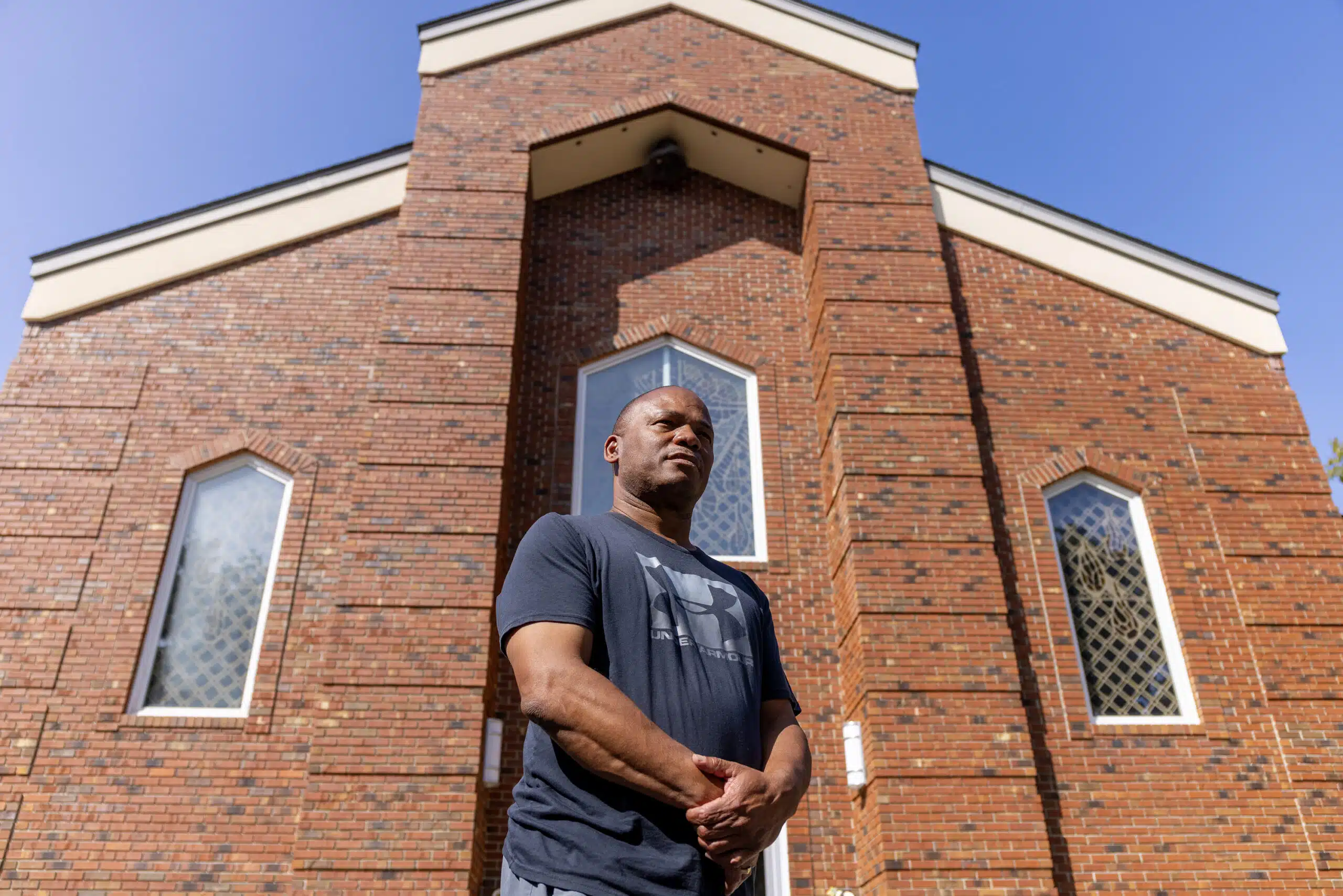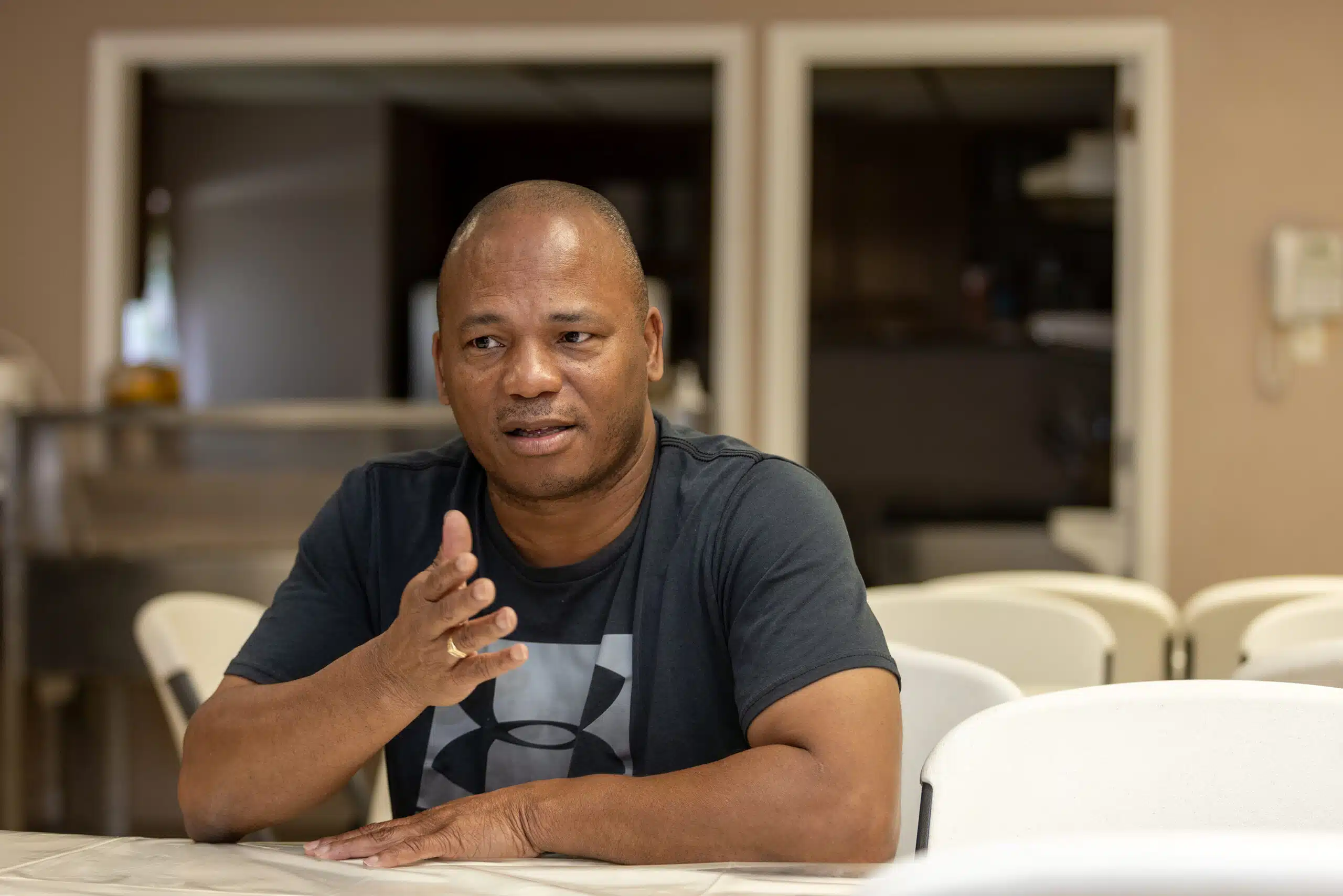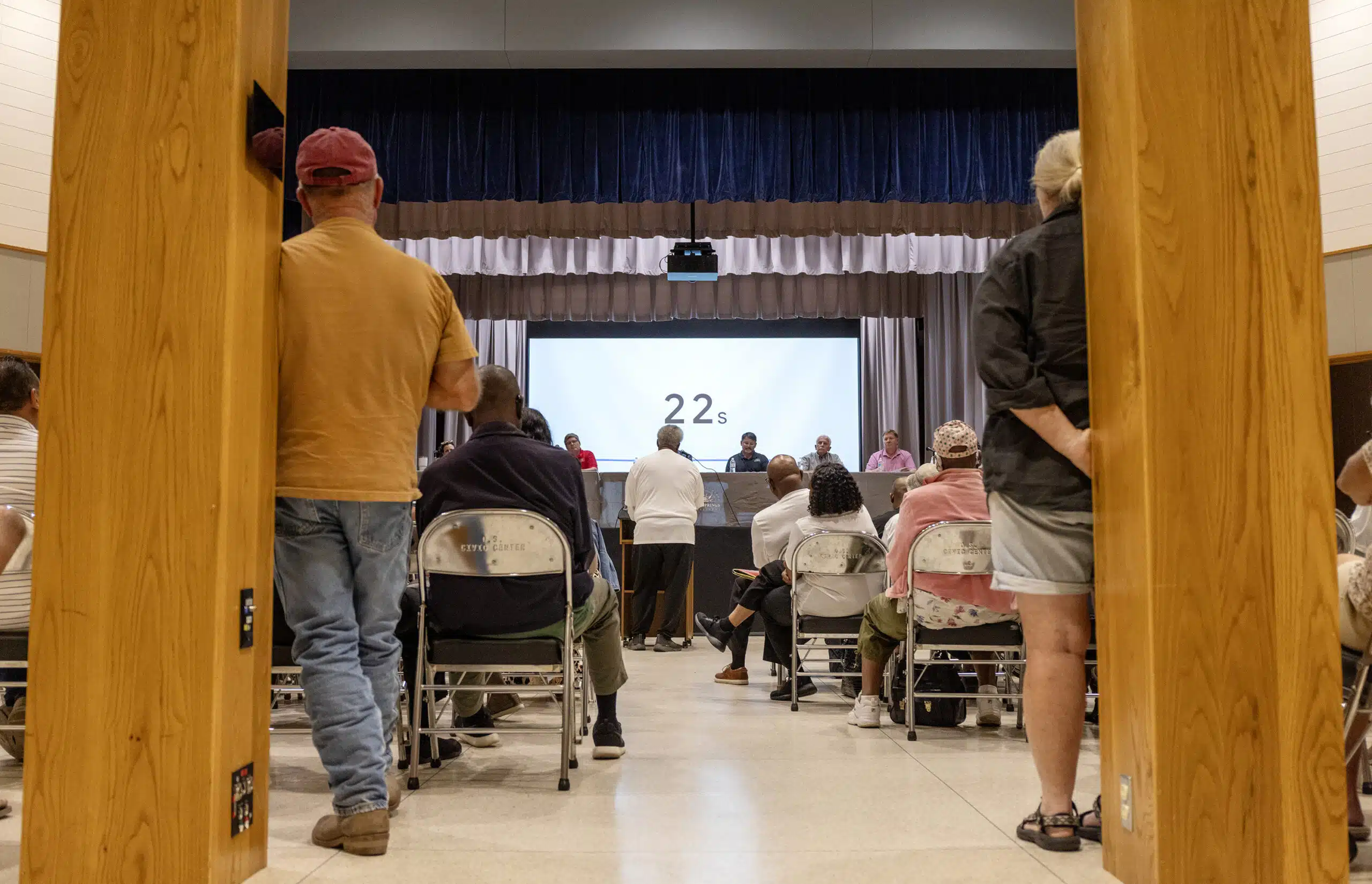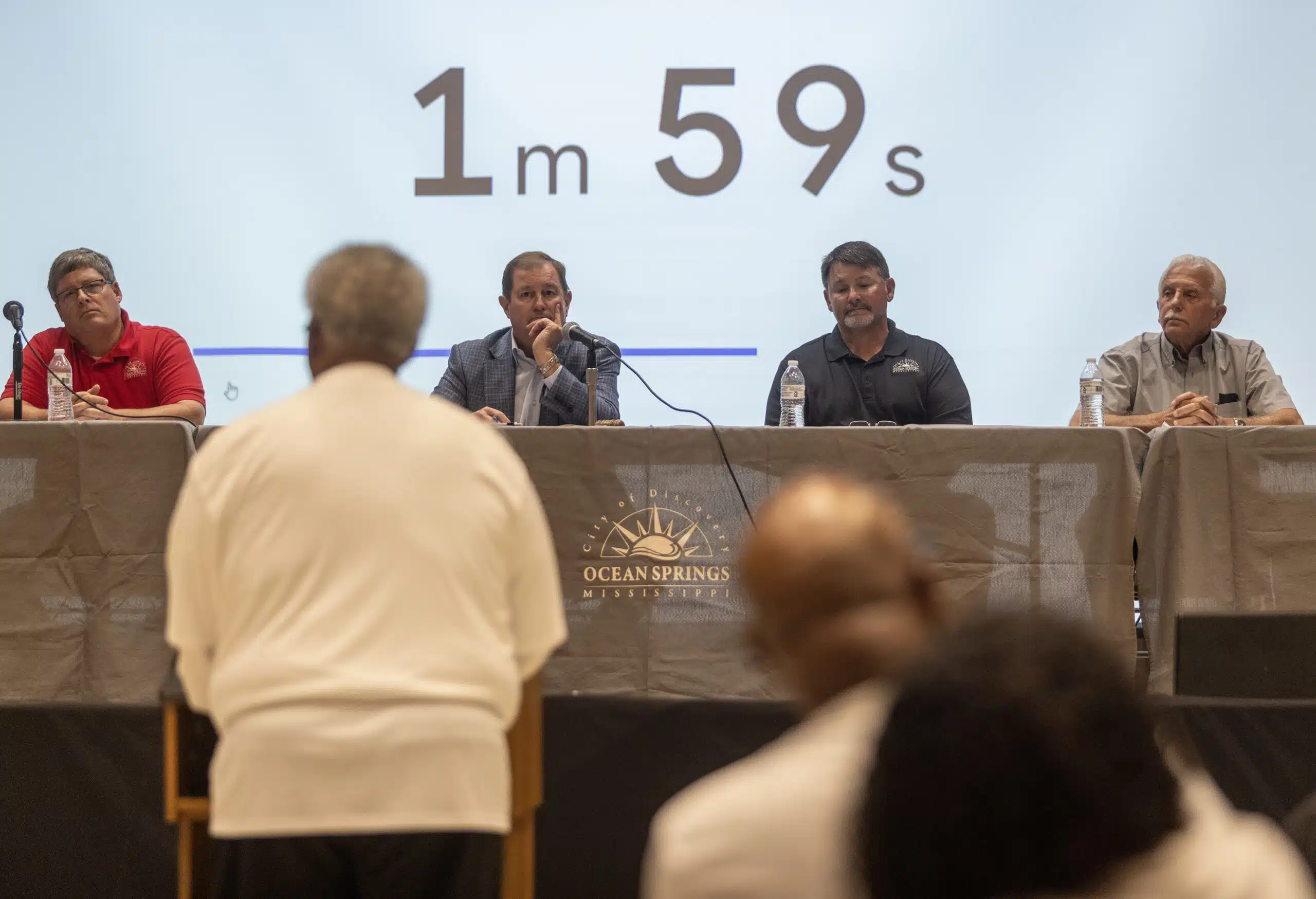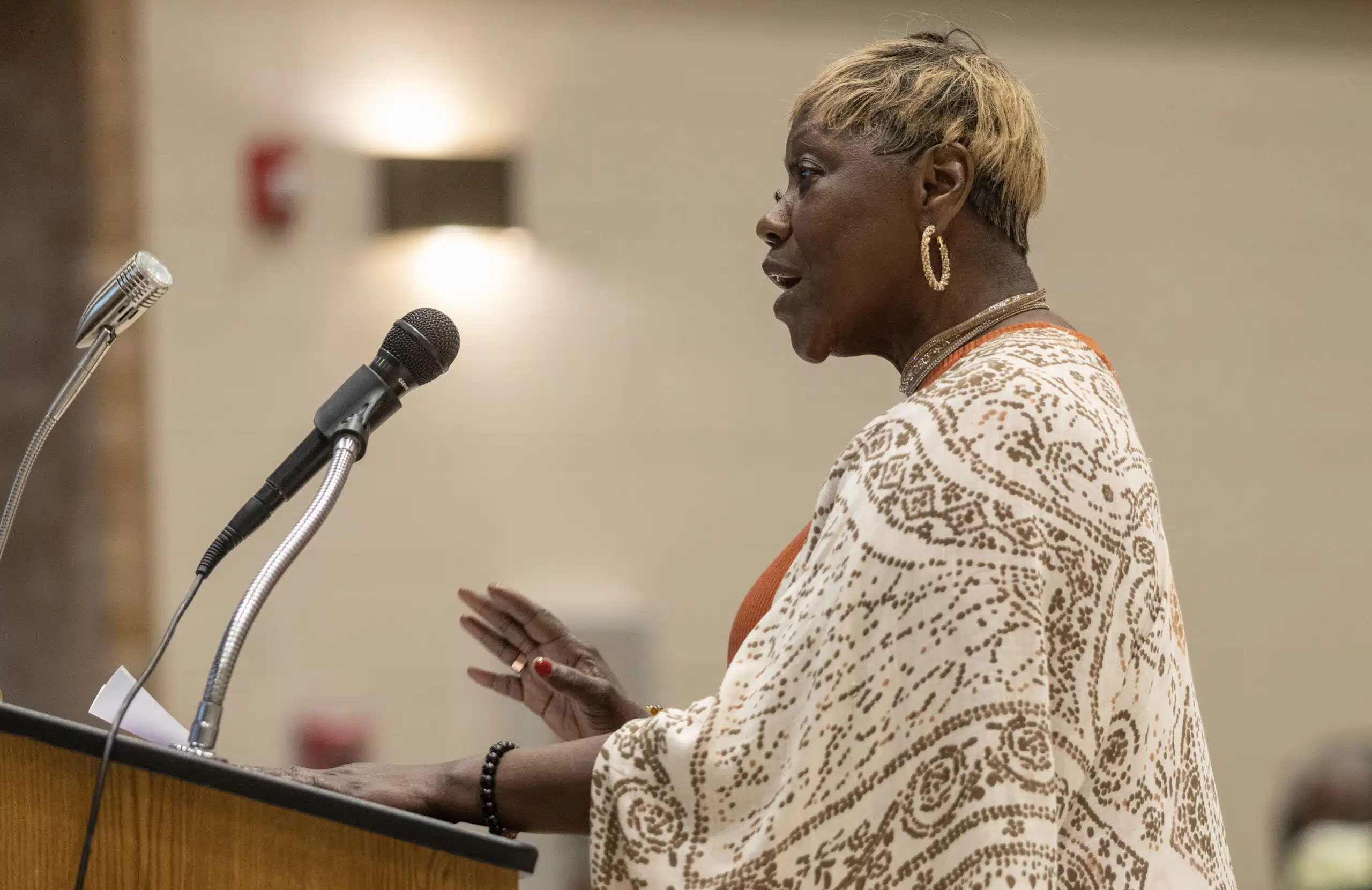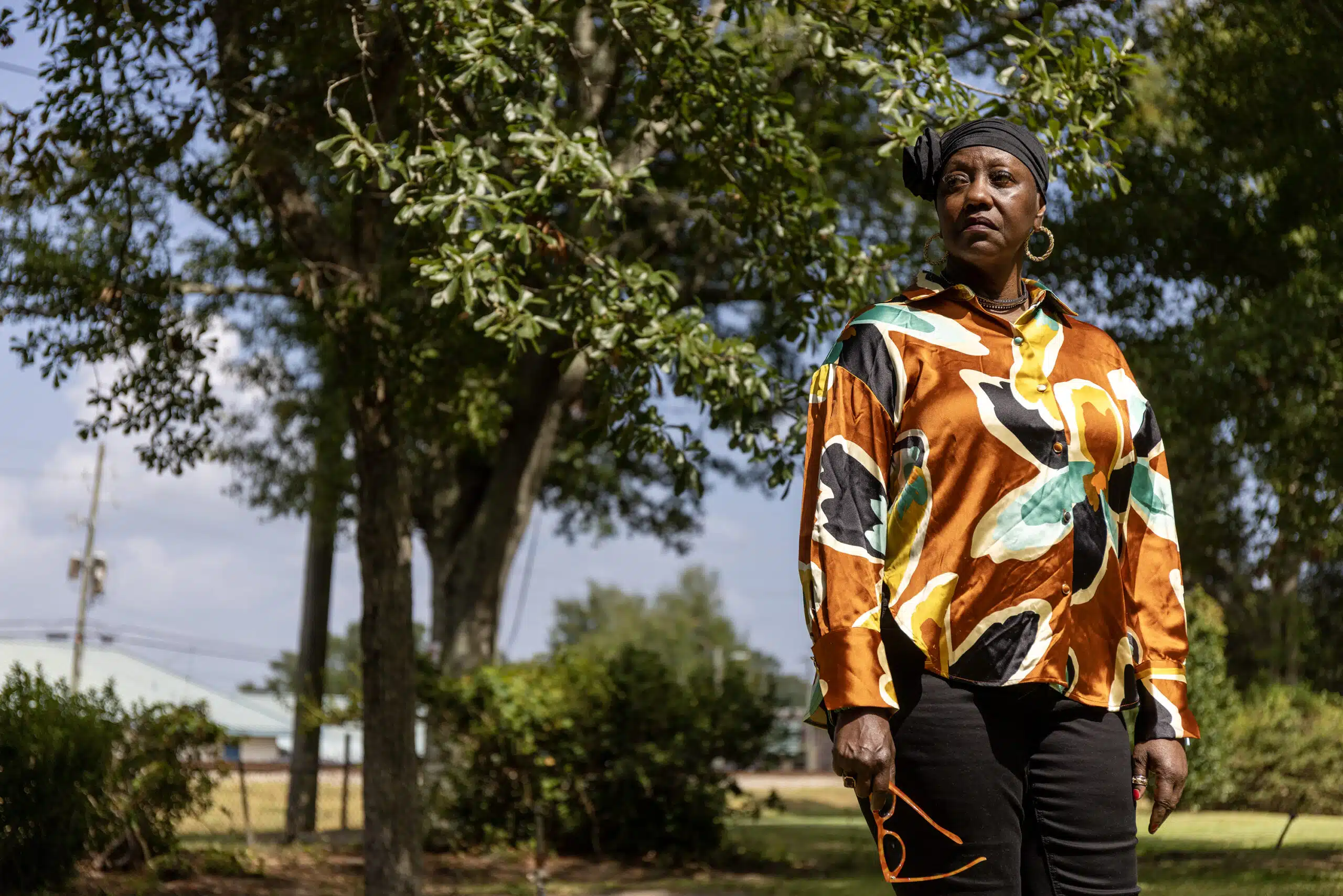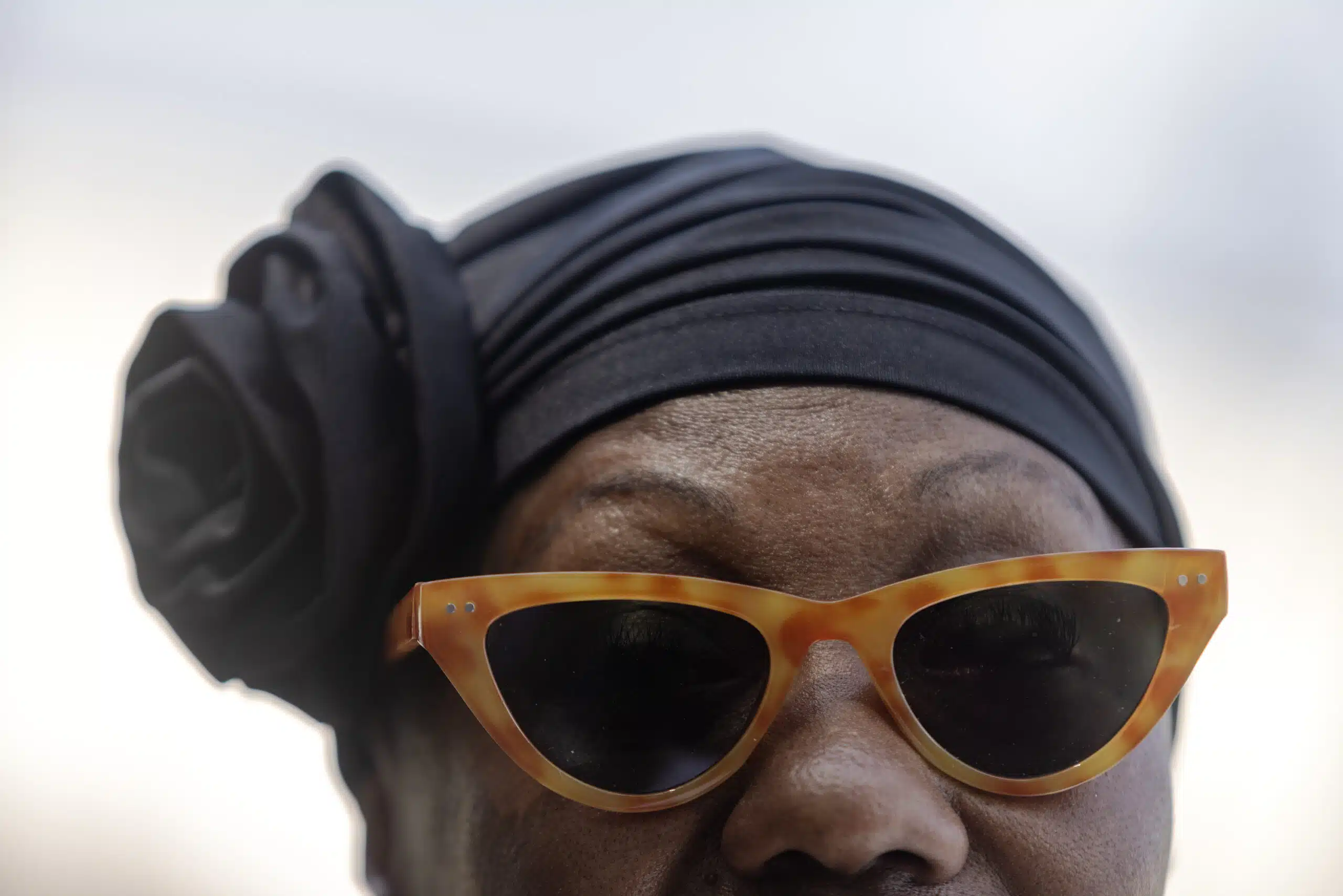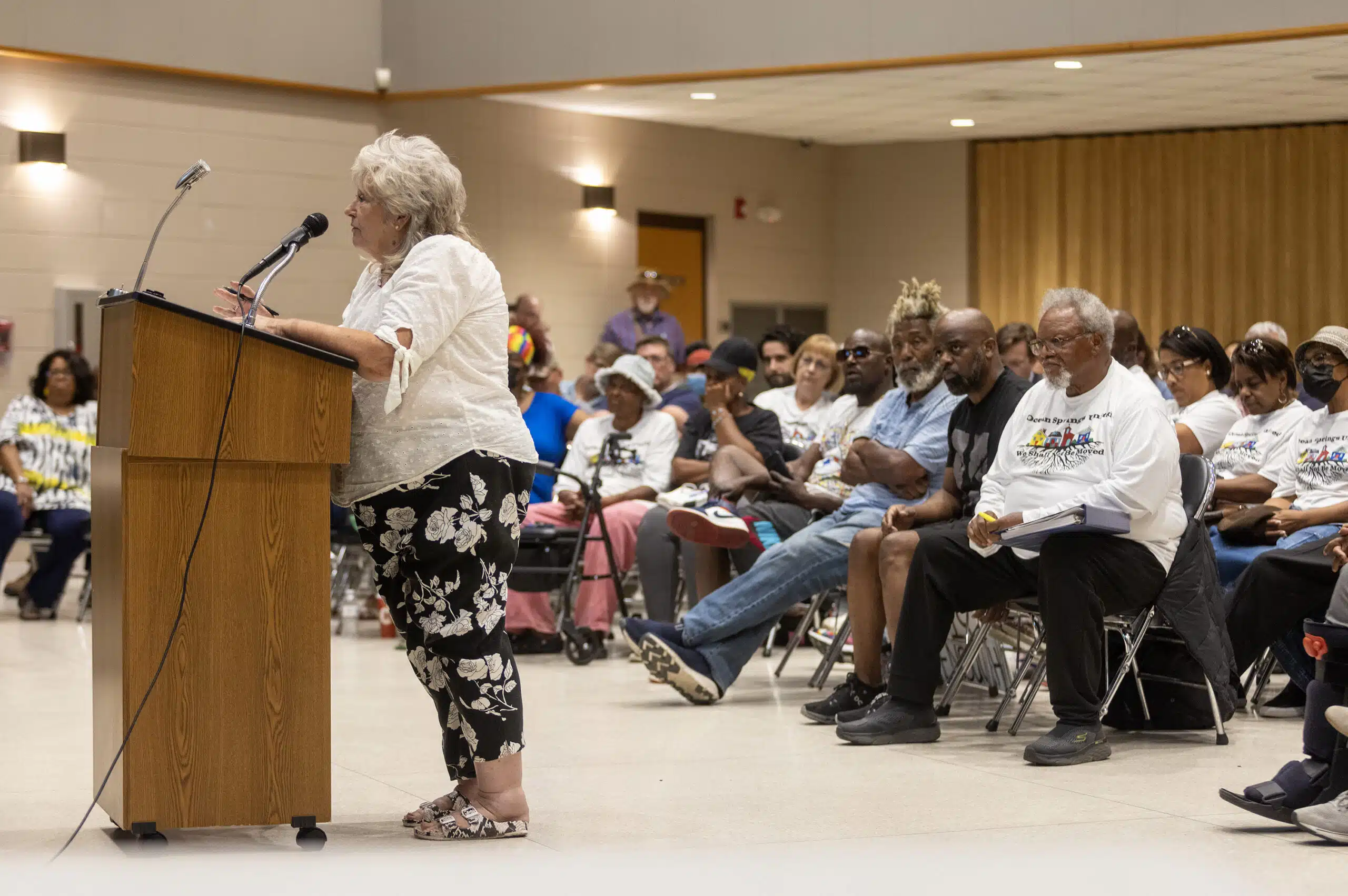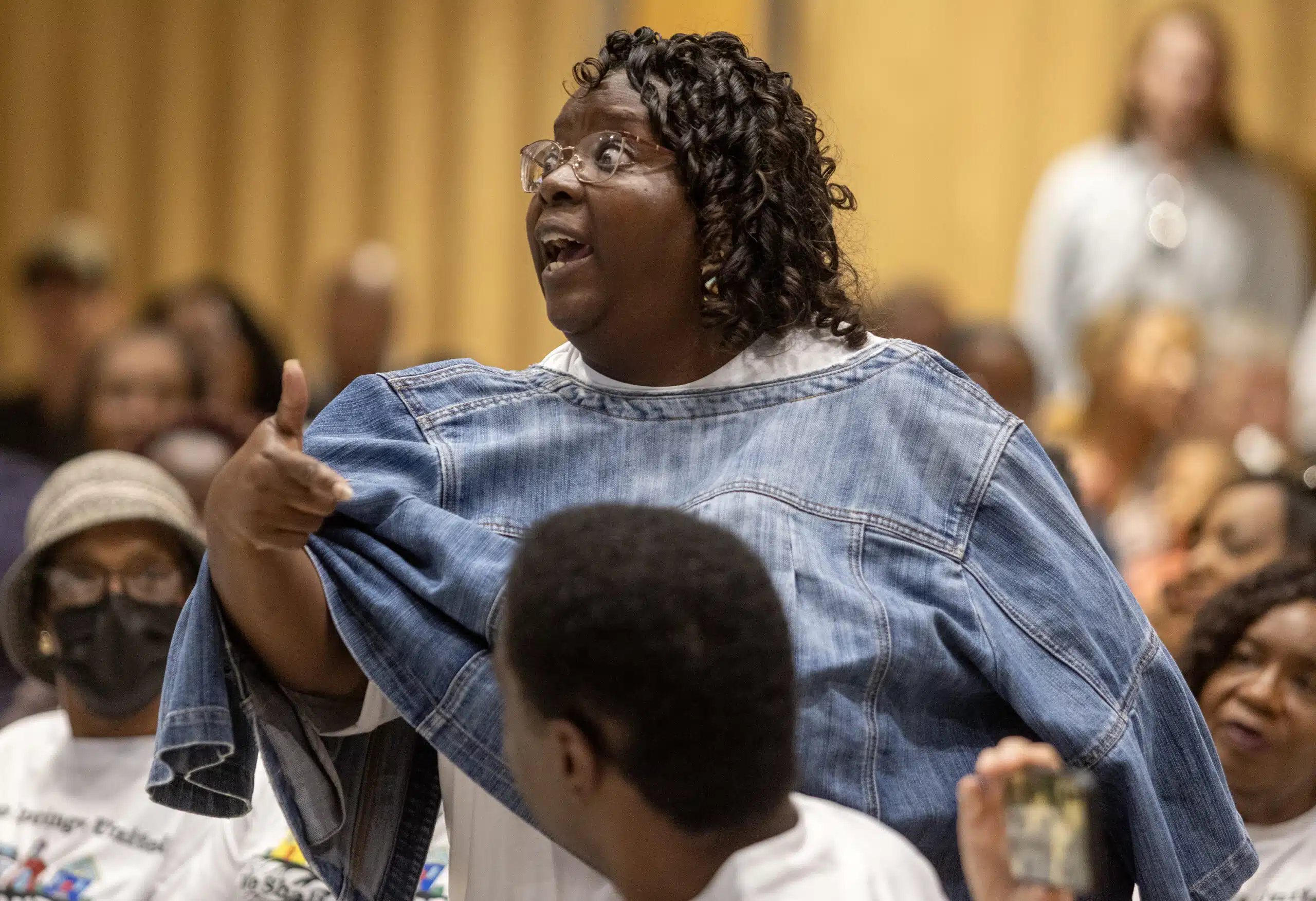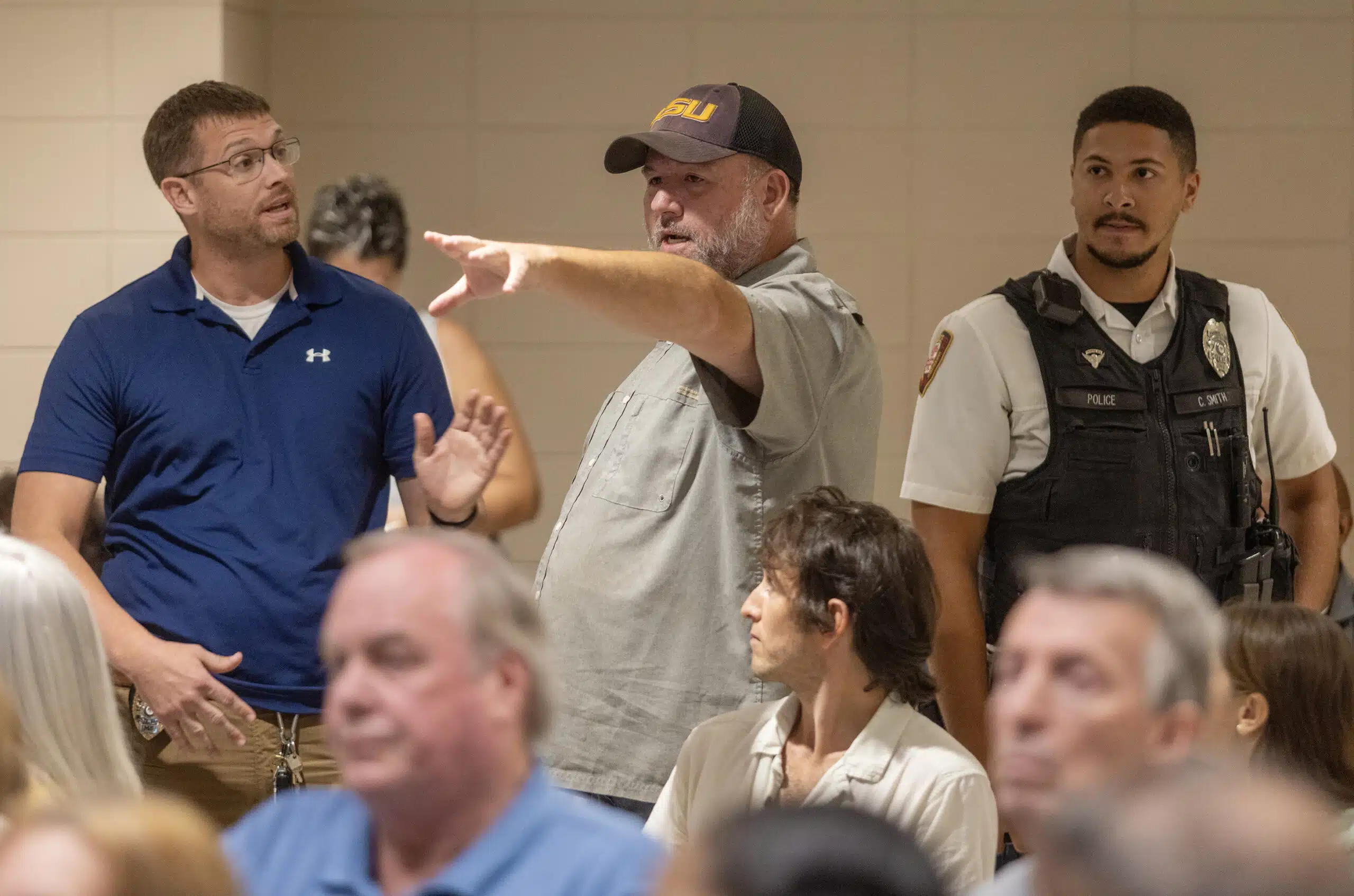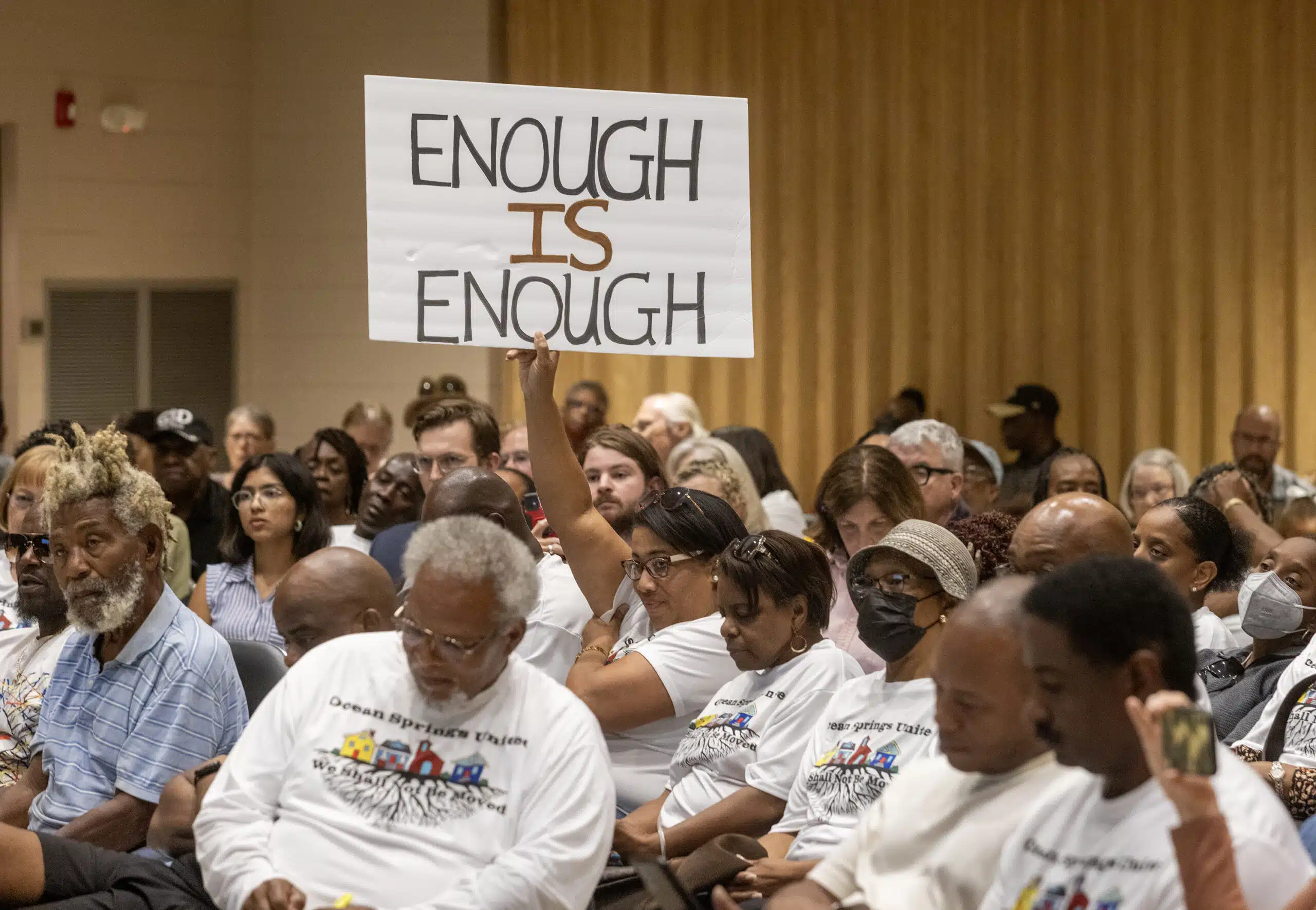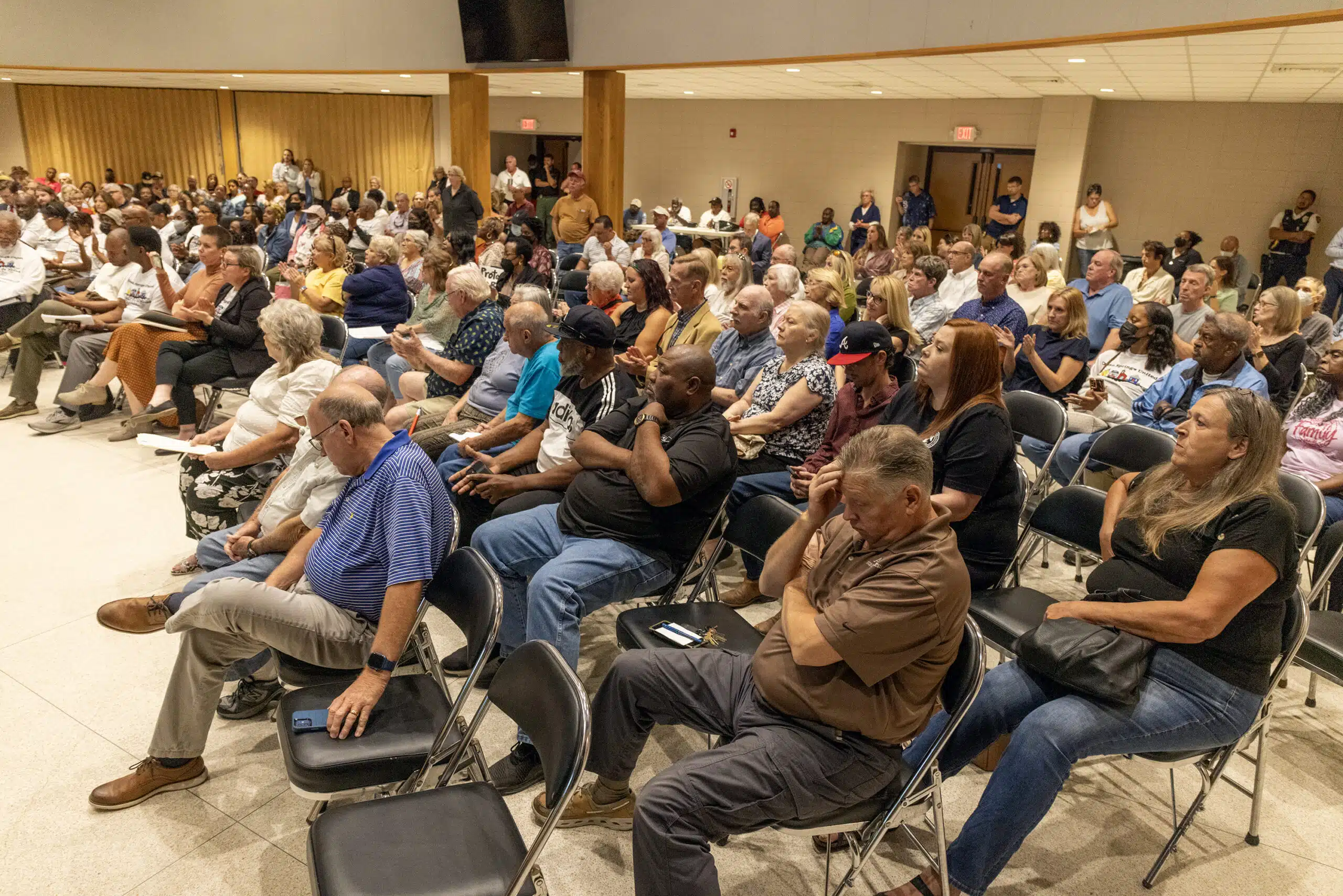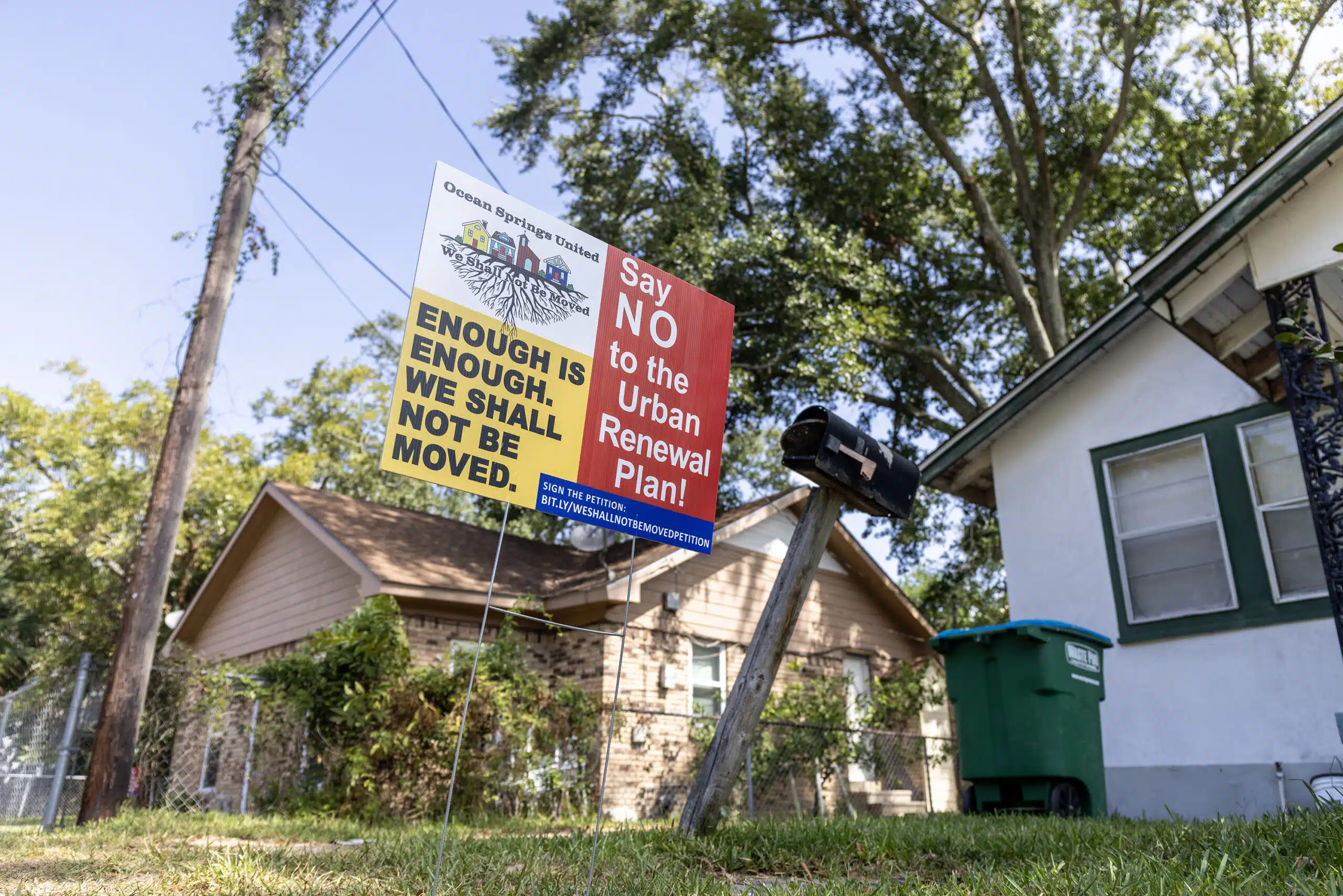Mississippi Today
‘Every man’s home is their castle’: How Ocean Springs’ pursuit for growth cost it the trust of its residents
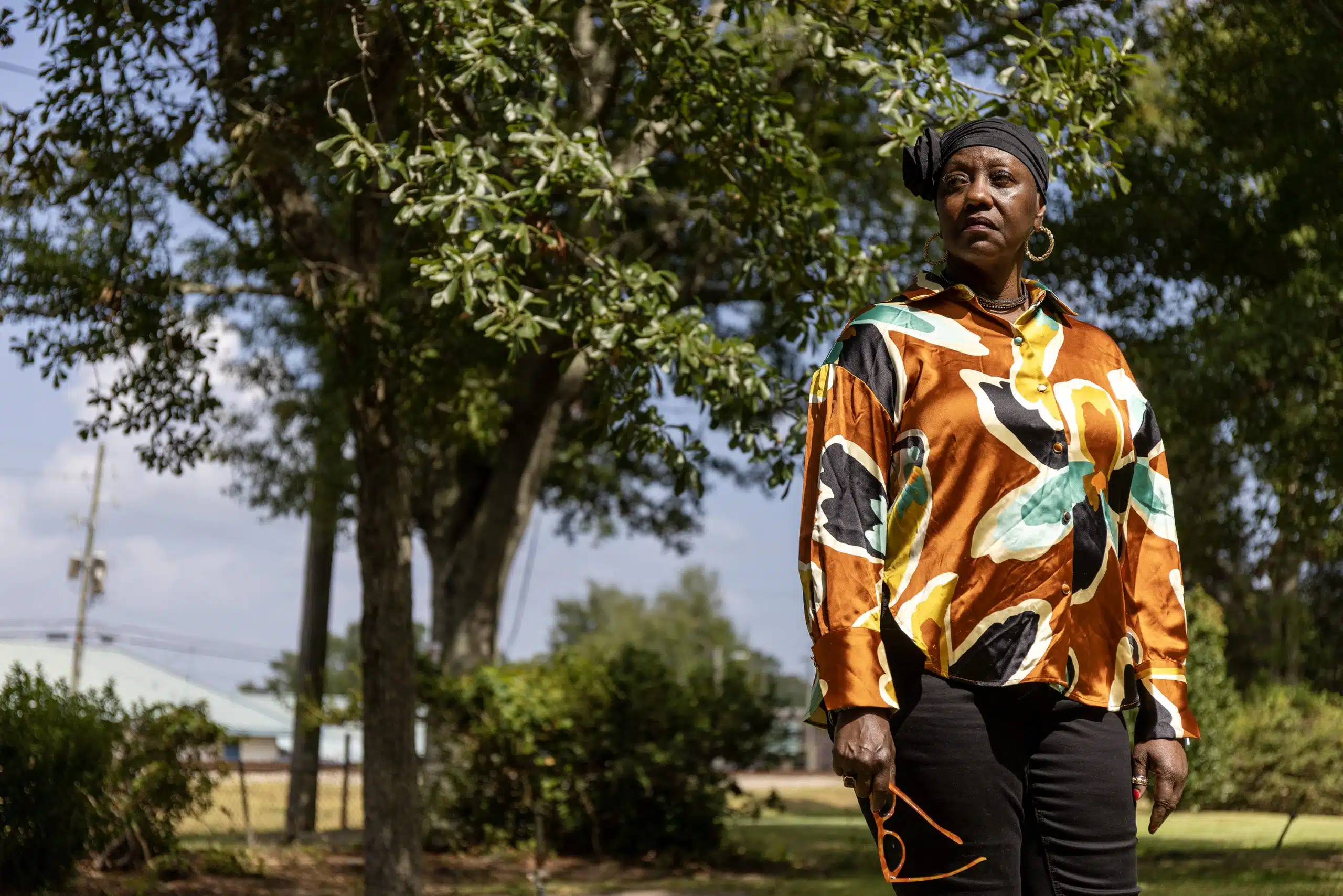
OCEAN SPRINGS – In many ways, Ocean Springs stands out from the rest of Mississippi.
Mississippi is 55% white and 36% Black; Ocean Springs is 79% white and 5% Black. Despite Mississippi’s underfunded and understaffed education system, Ocean Springs has received an “A” grade from the state for 10 years running. Despite being in the poorest state in the nation, Ocean Springs has a poverty rate lower than the country’s. Compared to the state overall, homes in the city are valued roughly one and half times higher.
National media has lauded the city in recent years: A 2022 USA Today list ranked it the best small coastal town in the country, praising its “quaint cottage-like” downtown and “artistic flair.” Another piece in the Wall Street Journal celebrated Ocean Springs for its “distinct charm.”
“We’re known for the historical homes, the mom and pop stores, the majestic oak trees,” described Greg Gipson, a native and longtime resident of the city.
But recent moves by city officials, Gipson and others feel, have started to erode that identity.
Mayor Kenny Holloway, who took office in 2021, says he wants to keep the charm that the so-called City of Discovery is known for. He believes to do that, the city has to think bigger.
“If the city’s not growing and moving forwards, you’re going backwards,” Holloway said in a recent interview with SuperTalk radio.
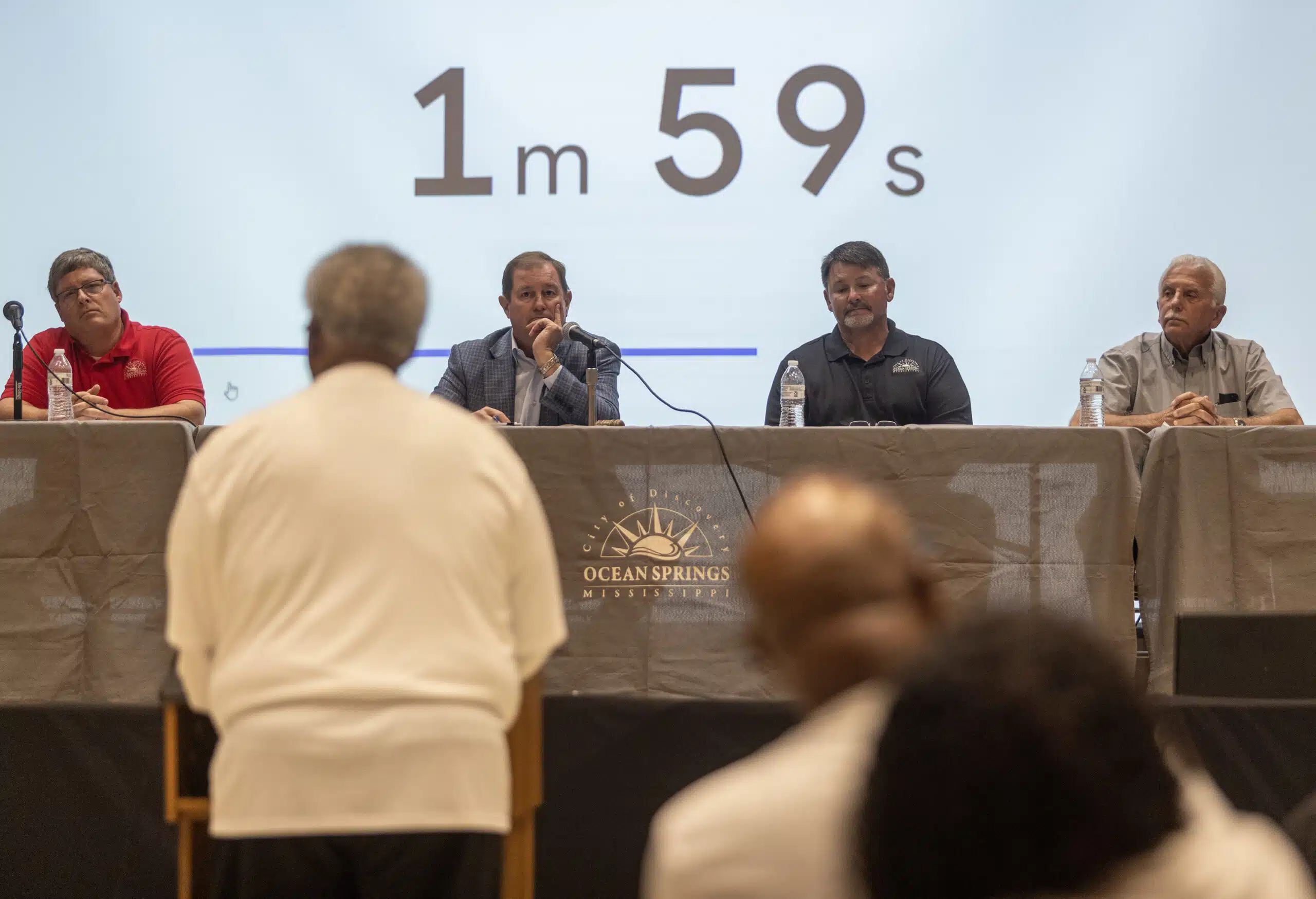
In the last couple of months, the mayor’s vision for growth has hit a wall: After word of a redevelopment plan spread through social media in August, the details of the plan drew a wave of dissent from residents, especially from those in a historic Black neighborhood called the Railroad District.
The Urban Renewal Plan lists over 100 properties in the city that officials, back in April, deemed to be “slum” or “blighted.” Those include vacant lots, small businesses, and old but still occupied homes.
The goal of the plan, as a city attorney told an audience at a recent public meeting, is to help the city qualify for federal development grants. Holloway, in an interview with Mississippi Today, explained that Ocean Springs wouldn’t normally qualify for certain grants, such as Community Development Block Grants, because the city’s median income is too high, which is why it had to single out specific areas as “blighted” to get funding for those properties.
When owners of those properties first saw the plan in August, their eyes clung to five words repeated throughout the document: “possible acquisition by the city.”

As it turns out, a Mississippi code allows cities to take someone’s property if the city designates it as “slum” or “blighted,” which is defined as places “detrimental to the public health, safety, morals or welfare.” In Mississippi, there’s no requirement for the city to inform property owners of the designation when it happens, and there’s also a 10-day limit on how long a property owner has to contest the designation, a restriction that doesn’t exist in most states.
In fact, most states don’t have any time limit, explained Dana Berliner, an attorney with the Institute for Justice. Berliner is representing Ocean Springs landowners in a recently filed federal lawsuit against the city over the redevelopment, which argues that the Mississippi laws violate the 14th Amendment right to due process.
The Ocean Springs Board of Alderman voted 5-2 to approve the designations at an April meeting, but the city neglected to notify any of the property owners beforehand. By the time property owners learned about the Urban Renewal Plan in August, the 10-day period had long passed.
After hearing from shocked and angered residents, Holloway said he was surprised by the pushback.

“We thought we were doing something that was very positive for every area and every citizen in Ocean Springs,” Holloway said. “If you had a house that needed sprucing up and (you wanted to use grant money), that’s what we were trying to present to that part of Ocean Springs.”
He admitted that the city could’ve done a better job communicating its intentions. As he repeatedly emphasized, the city has no interest in forcibly taking anyone’s property, and he added that he doesn’t believe anywhere in the city is actually a “slum.”
Still, he said, the city has followed the state law, explaining that “we’re not required to send out individual notices” when giving those designations.
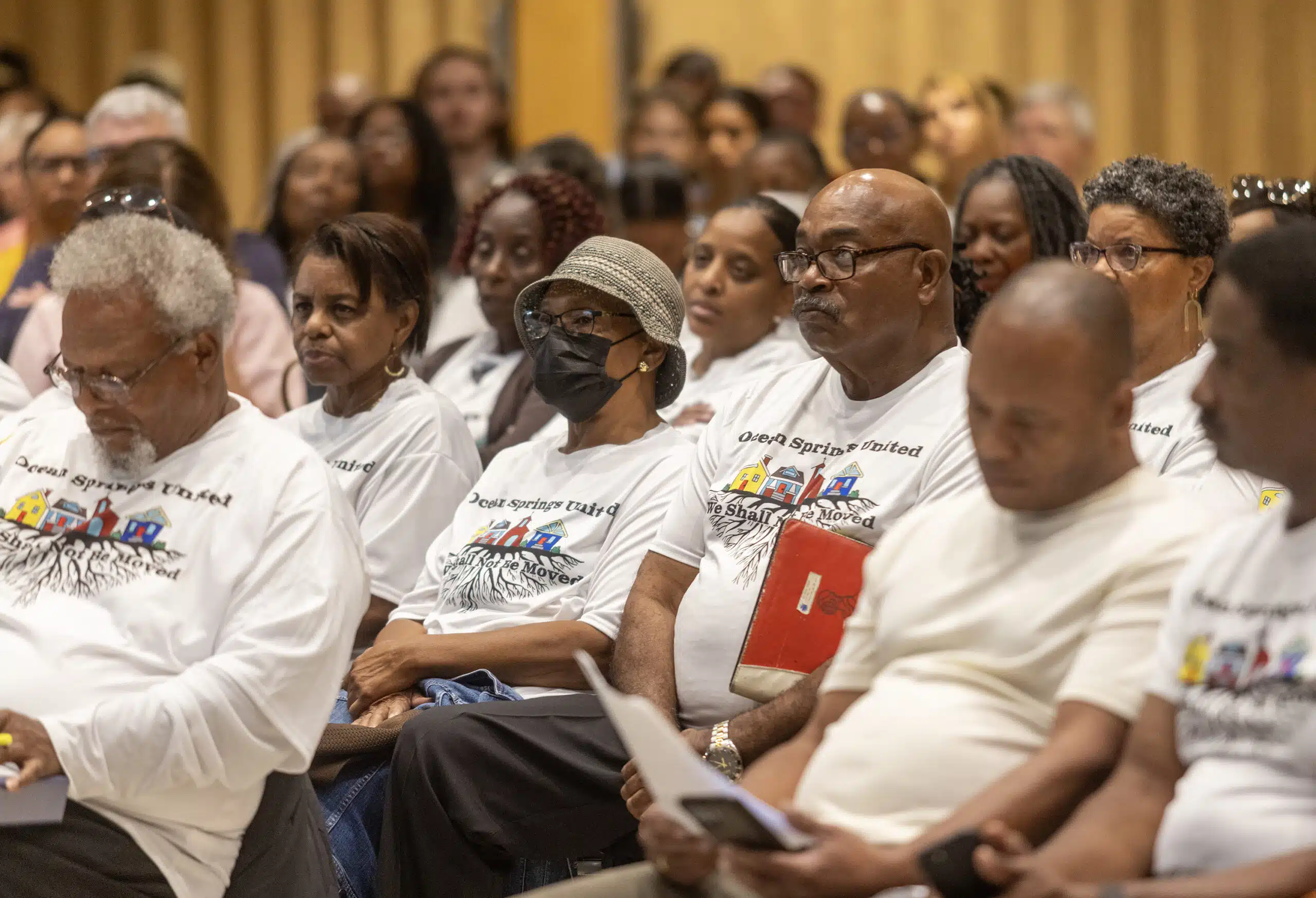
“It is not anything that we tried to hide,” Holloway said, explaining that maps of the plan were on display in city hall weeks before the April vote. “You got to understand, we get the commotion part of it. Did we roll it out properly? There were some errors we made, obviously. But we did everything by statute.”
Whether or not the Urban Renewal Plan includes acquiring properties, the homes of families who’ve lived in Ocean Springs for generations are stuck with the “slum” and “blighted” labels because they missed the 10-day appeal period. That means that, at any point, the city could still decide in the future to acquire those properties, with or without the owners’ approval.
In the weeks after residents discovered the proposal, more controversy from city hall widened the division between officials and the public.
At a September meeting of the city’s Historic Preservation Commission, a committee member was caught on microphone saying old homes in Ocean Springs, including those targeted in the redevelopment plan, “need to be burnt down.” The member later told the Sun Herald he was being “sarcastic.”
On a Monday night in early October, the city held a public meeting at the Ocean Springs Civic Center to hear feedback from residents on the Urban Renewal Plan. Of the dozens who spoke, only one person, a woman from nearby Pascagoula, supported the plan. Almost everyone else was critical of the mayor and aldermen sitting on stage before them.
“That was so disrespectful for someone to say something like that,” said John Joiner about the “burnt down” comments. Joiner spoke on behalf of resident Joe Daley, a cancer patient who was sitting next to Joiner and has lived in the city since 1946. “It’s their home. Every man’s home is their castle.”
Cynthia Fisher spoke about the property her grandmother bought in 1920 in the Railroad District, just outside of downtown Ocean Springs. The Urban Renewal Plan shows a picture of the home there, where Fisher’s sister now lives, with text reading, “The elimination of blighting conditions on this property will increase the probability of redevelopment of the neighborhood.”

Fisher, who now lives around the corner from the house, told the officials that before bars started popping up nearby, “y’all didn’t even think about that part of town.”
“There’s a lot of history down there in that neighborhood,” she said. “For y’all to include that, that’s the only completely Black neighborhood in there.”
Rana Oliver, whose family’s home was also listed in the plan, said she only found out that her property was included when a friend messaged her on Facebook.
“Your Urban Renewal Plan was disrespectful, it was disrespectful because there was no notification to the citizens,” Oliver told the officials. “We’re your fellow citizens. And I want to ask you as my fellow citizens, where was your humanity?”
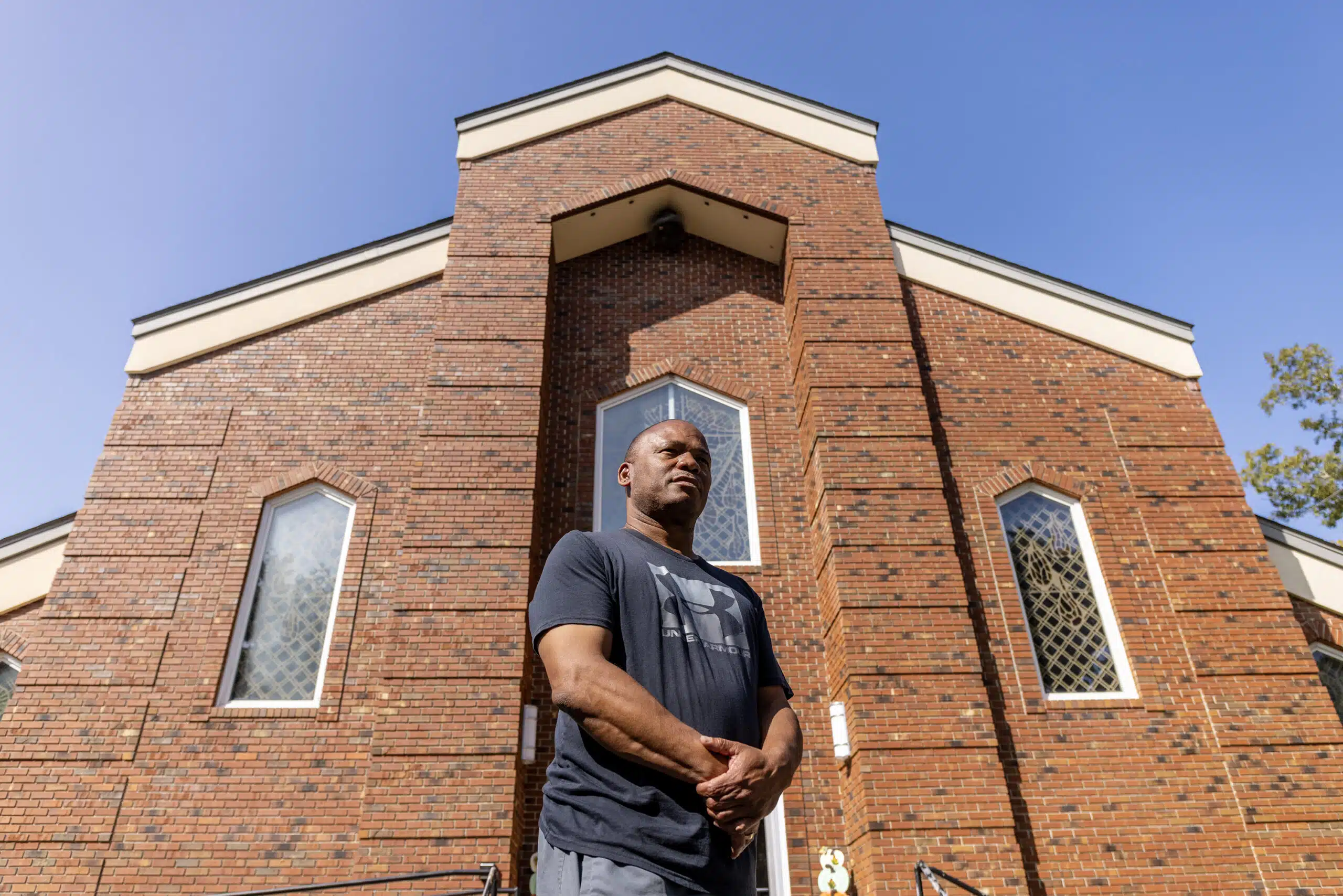
Even before the Urban Renewal Plan, residents in and around Ocean Springs were skeptical of the city’s pursuit for more development.
Four years ago, a group of residents sued the city over plans to build a beachfront condominium called “The Sands.” They argued that the area was primarily used for single-family homes, and that the Ocean Springs Board of Aldermen were bending zoning codes to allow the project to move forward. In 2021, a circuit court judge sided against the city, calling the board’s actions, “unreasonable, arbitrary, and capricious.”
Another avenue of growth the city has worked on for years is trying to annex surrounding parts of Jackson County, but last year the county Board of Supervisors voted unanimously against it.
Anecdotally, residents say the identity of the city, especially downtown, has shifted to accommodate more entertainment.
“When I first got here in the late 1990s, Government Street (in downtown Ocean Springs) wasn’t like it is now. It was more quiet, quaint,” said Sam Washington, board chairman of Macedonia Missionary Baptist Church. The church has been a hub in the Railroad District for decades, and part of its parking lot is included in the redevelopment plan.
“Over the years, it has gone more towards the ‘entertainment district.’ People going clubbing, people drinking,” Washington said.
Washington referenced a “to-go cup” law the city passed in 2016, allowing patrons to walk outside with alcohol in parts of downtown, just next to the Railroad District. Some longtime residents say the recent trend has come at the cost of the city’s character.
“I’m not saying I’m against development, but we have to do it in a smart way where we keep the charm of Ocean Springs,” said Gipson, the Ocean Springs local. “But when you start adding additional bars, additional hotels, and all this other stuff, it just does not match up with what this city was built on.”

At the October public meeting, several residents raised concerns that the city was simply using the Urban Renewal Plan to transfer property over to private developers. Holloway, the mayor, is himself a developer; according to the bio on the city’s website, he’s a broker and owner of a real estate and development company.
According to a Mississippi Today analysis of campaign finance reports, Holloway received $32,550 – a third of his total itemized donations – from a plethora of businesses and employees in construction, civil engineering, urban planning, real estate and development. The mayor also received $2,000 from restaurants in downtown Ocean Springs, and another $2,000 from two companies proposing to fill wetlands along Ocean Springs in order to build multi-family housing.
In a city where only five percent of residents are Black, much less than in Jackson County and the state overall, a vast majority of homes listed in the Urban Renewal Plan are in the predominantly Black Railroad District.
The neighborhood, bisected by train tracks going East and West, was the main part of Ocean Springs that Black families felt welcome for decades, residents there say. Gipson, 56, said his father used his wages from working at the shipyard to build a home across the street from the Macedonia Missionary Baptist Church. He remembers as a kid recognizing that the Black families mainly stayed in that part of the city.
“This was an all Black area, we knew that,” he said. “We knew it, going to Sunday school, going to church. When we got to a certain point, up the road, down the road, they would have people looking out for us, and they would call and tell our parents, ‘They just passed by.’”
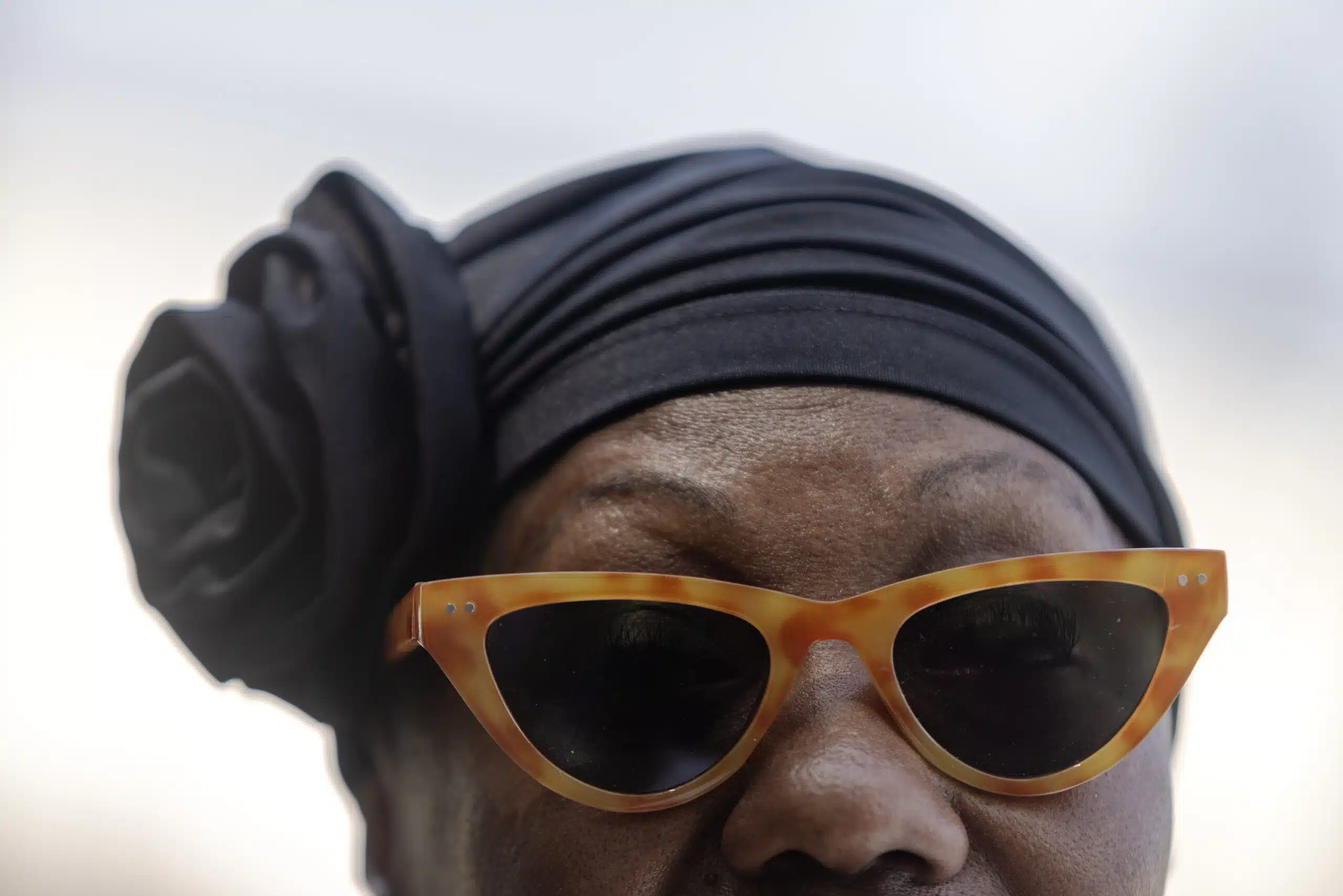
Curley Clark, president of the Jackson County NAACP Chapter since 1980, said the fact the Railroad District is being targeted in the redevelopment plan is a result of the city’s segregated history.
“Because of historical discrimination and historical redlining, Black people were only allowed to acquire property in certain areas,” Clark said. “The Black community remained where it was, and the white community expanded outwards. And since the central city remained in its present location, the Black neighborhoods end up being prime property.”
Holloway, as well as the aldermen, are all white. After hearing residents’ criticism, the mayor’s office spoke with both Clark as well as ACLU-MS.
Holloway told Mississippi Today about those conversations: “They don’t see anything wrong that we’ve done. They don’t see any racial issues attached to it.”
When Mississippi Today reached out to the groups, though, neither agreed with the mayor’s version of what was said.
Clark said that, while he agreed there weren’t any racist intentions in the plan, he told Holloway the city should’ve done more to include community members in the early stages of writing the plan.
“I take issue to that,” Clark said of the mayor’s account. “I looked him in the eyes and told him, ‘You didn’t develop the plan in the best manner, and you should’ve had more participation from the minority sector.’”
Ashley McLaughlin, director of Policy and Advocacy for ACLU-MS, said she never indicated she approved of the plan, and also told the mayor’s office the city could do more to build a relationship with community members.
With the recently filed lawsuit, the plan’s future is unclear. The city is giving property owners an option to sign an “opt out” form until the end of October to leave them out of the plan, but which would also prevent them from receiving the grants the city is looking for.
While the mayor said the city has “pumped the brakes” after hearing residents’ feedback, he also said he and the city aldermen will revisit the redevelopment proposal in the future.
“Our city attorney spoke with Attorney General (Lynn) Fitch who will address the claims that the urban renewal plan statutes are unconstitutional,” Holloway said in response to the lawsuit, reiterating that the city still has yet to vote to approve the plan. “The city’s proposed Urban Renewal Plan has not violated anyone’s rights. It is unfortunate that our residents have chosen to file a lawsuit instead of having a constructive discussion with the city.”
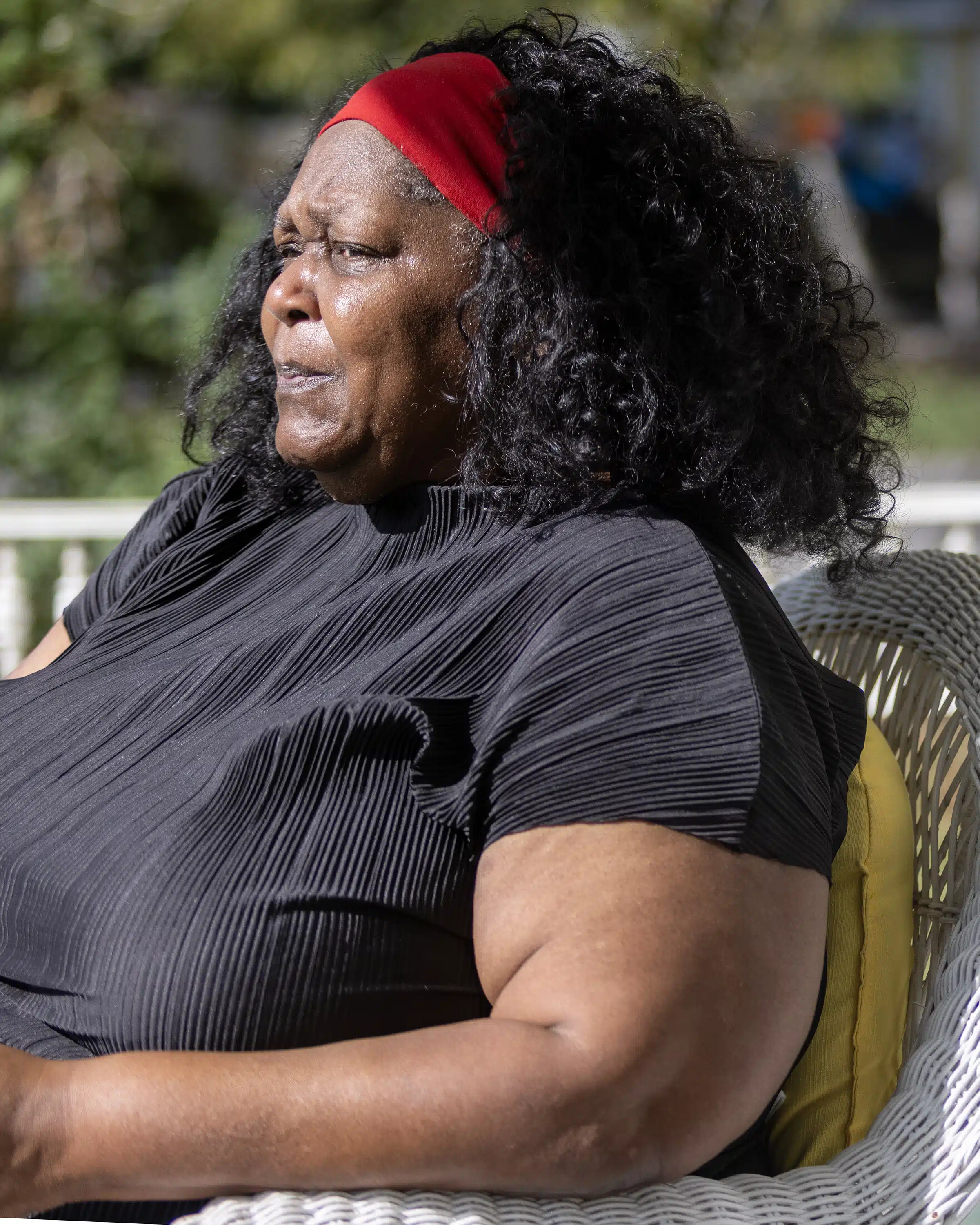
None of the city’s aldermen responded to requests for comment from Mississippi Today.
Attorney Elizabeth Feder-Hosey, an Ocean Springs resident and native, is representing the residents and business owners and church in the lawsuit. She’s working on the complaint with the Institute of Justice, a Virginia-based nonprofit that specializes in eminent domain cases.
At the October public meeting, Feder-Hosey criticized the officials for their lack of transparency.
For example, she noted later in an interview, the agenda for the decisive April board meeting only stated the “Urban Renewal Plan,” and nothing about designating areas as “slums” or “blighted.
“And then you’ve got the complete lack of notice,” Feder-Hosey added. “There’s that whole, ‘We didn’t have to (tell people), so we didn’t do it.’ Which to me is not about serving your people. If you want the community to buy into your plan, you give them a seat at the table and you tell them what the plan is, all the steps of it, the benefits, the risks. The city’s kind of just piecemealed out these little morsels for people to hang on.
“At no step has the city done anything to earn the trust of its people.”
This article first appeared on Mississippi Today and is republished here under a Creative Commons license.
Crooked Letter Sports Podcast
Podcast: The Mississippi Sports Hall of Fame Class of ’25
The MSHOF will induct eight new members on Aug 2. Rick Cleveland has covered them all and he and son Tyler talk about what makes them all special.
Stream all episodes here.
This article first appeared on Mississippi Today and is republished here under a Creative Commons Attribution-NoDerivatives 4.0 International License.
The post Podcast: The Mississippi Sports Hall of Fame Class of '25 appeared first on mississippitoday.org
Mississippi Today
‘You’re not going to be able to do that anymore’: Jackson police chief visits food kitchen to discuss new public sleeping, panhandling laws
Diners turned watchful eyes to the stage as Jackson Police Chief Joseph Wade took to the podium. He visited Stewpot Community Services during its daily free lunch hour Thursday to discuss new state laws, which took effect two days earlier, targeting Mississippians experiencing homelessness.
“I understand that you are going through some hard times right now. That’s why I’m here,” Wade said to the crowd. “I felt it was important to come out here and speak with you directly.”
Wade laid out the three bills that passed earlier this year: House Bill 1197, the “Safe Solicitation Act,” HB 1200, the “Real Property Owners Protection Act” and HB 1203, a bill that prohibits camping on public property.
“Sleeping and laying in public places, you’re not going to be able to do that anymore,” he said. “There’s a law that has been passed that you can’t just set up encampments on public or private properties where it’s a public nuisance, it’s a problem.”
The “Real Property Owners Protection Act,” authored by Rep. Brent Powell, R-Brandon, is a bill that expedites the process of removing squatters. The “Safe Solicitation Act,” authored by Rep. Shanda Yates, I-Jackson, requires a permit for panhandling and allows people to be charged with a misdemeanor if they violate this law. The offense is punishable by a fine not to exceed $300 and an offender could face up to six months in jail. Wade said he’s currently working with his legal department to determine the best strategy for creating and issuing permits.
“We’re going to navigate these legal challenges, get some interpretations, not only from our legal department, but the Attorney General’s office to ensure that we are doing it legally and lawfully, because I understand that these are citizens,” he said. “I understand that they deserve to be treated with respect, and I understand that we are going to do this without violating their constitutional rights.”
Wade said the Jackson Police Department is steadily fielding reports of squatters in abandoned properties and the law change gives officers new power to remove them more quickly. The added challenge? Figuring out what to do with a person’s belongings.
“These people are carrying around what they own, but we are not a repository for all of their stuff,” he said. “So, when we make that arrest, we’ve got to have a strategic plan as to what we do with their stuff.”
Wade said there needs to be a deeper conversation around the issues that lead someone to becoming homeless.
“A lot of people that we’re running across that are homeless are also suffering from medical conditions, mental health issues, and they’re also suffering from drug addiction and substance abuse. We’ve got to have a strategic approach, but we also can’t log jam our jail down in Raymond,” Wade said.
He estimates that more than 800 people are currently incarcerated at the Raymond Detention Center, and any increase could strain the system as the laws continue to be enforced.
“I think there’s layers that we have to work through, there’s hurdles that we are going to overcome, but we’ve got to make sure that we do it and make sure that my team and JPD is consistent in how we enforce these laws,” Wade said.
Diners applauded Wade after he spoke, in between bites of fried chicken, salad, corn and 4th of July-themed packaged cakes. Wade offered to answer questions, but no one asked any.
Rev. Jill Buckley, executive director of Stewpot, said that the legislation is a good tool to address issues around homelessness and community needs. She doesn’t want to see people who are homeless be criminalized, but she also wants communities to be safe.
“I support people’s right to self determine, and we can’t impose our choices on other people, but there are some cases in which that impinges on community safety, and so to the extent that anyone who is camping or panhandling or squatting and is a danger to themselves and others, of course, I fully support that kind of law. I don’t support homelessness being criminalized as such,” Buckley said.

Many of the people Wade addressed while they ate Thursday said they have housing, don’t panhandle, and shouldn’t be directly impacted by the legislation. But Marcus Willis, 42, said it would make more sense if elected officials wanted to combat the negative impacts of homelessness that they help more people secure employment.
“There ain’t enough jobs,” said Willis, who was having lunch with his girlfriend Amber Ivy.
The two live in an apartment together nearby on Capitol Street, where Ivy landed after her mother, whom Ivy had been living with, suffered a stroke and lost the property. Similarly, Willis started coming to eat at Stewpot after his grandmother, whose house he used to visit for lunch, passed away.
Willis holds odd jobs – cutting grass, home and auto repair – so the income is inconsistent, and every opportunity for stable employment he said he’s found is outside of Jackson in the suburbs. The couple doesn’t have a car.
Making rent every month usually depends on their ability to find someone to help chip in, said Ivy, who is in recovery from substance abuse. She said she’s watched problems surrounding homelessness grow over the years in Jackson. Ivy grew up near Stewpot and has lived in various neighborhoods across the city – except for the times she moved out of state when things got too rough.
“There was just moments where I just had to leave,” Ivy said. “Sometimes if you hit a slump here, there’s almost no way for you to get out of it.”
This article first appeared on Mississippi Today and is republished here under a Creative Commons Attribution-NoDerivatives 4.0 International License.
The post 'You're not going to be able to do that anymore': Jackson police chief visits food kitchen to discuss new public sleeping, panhandling laws appeared first on mississippitoday.org
Note: The following A.I. based commentary is not part of the original article, reproduced above, but is offered in the hopes that it will promote greater media literacy and critical thinking, by making any potential bias more visible to the reader –Staff Editor.
Political Bias Rating: Center-Right
This article primarily reports on new laws in Jackson, Mississippi, targeting public sleeping, panhandling, and squatting, focusing on statements by Police Chief Joseph Wade and community perspectives. The coverage presents the legislative measures—authored by Republican and independent lawmakers—with a tone that emphasizes law enforcement challenges and community safety, reflecting a conservative approach to homelessness as a public order issue. While it includes voices concerned about criminalization and the need for social support, the overall framing centers on law enforcement and property protection. The article maintains factual reporting without overt editorializing but leans slightly toward a center-right perspective by highlighting legal enforcement as a solution.
Mississippi Today
Medicaid cuts could be devastating for the Delta and the rest of rural America
Note: This story first published in Stateline, which is part of States Newsroom, the nation’s largest state-focused nonprofit news organization.
LAKE PROVIDENCE, La. — East Carroll Parish sits in the northeastern corner of Louisiana, along the winding Mississippi River. Its seat, Lake Providence, was a thriving agricultural center of the Delta. Now, the town is a shell of its former self. Charred and dilapidated buildings dot the small city center. There are a few gas stations, a handful of restaurants — and little to no industry.
Mayor Bobby Amacker, 79, says at one point “you couldn’t even walk down the street” in Lake Providence’s main business district because “there were so many people.”
“It’s gone down tremendously in the last 50 years,” said Amacker, a Democrat. “The town, it looks like it’s drying up. And it’s almost unstoppable, as far as I can tell.”
Now, East Carroll residents stand to lose even more. Like many people in Louisiana, they received a lifeline when the state expanded Medicaid to more low-income adults in 2016. Expansion drove Louisiana’s uninsured rate to the lowest in the Deep South, at 8% in 2023 for working-age adults, according to state data, despite it having the highest poverty rate in the U.S. that year.
This week, both chambers of Congress approved President Donald Trump’s “big, beautiful” tax and spending bill. It includes more than $1 trillion in cuts to Medicaid, the joint state-federal health insurance program for poor families and individuals, to help pay for tax cuts that mostly benefit the rich. The legislation would cause 11.8 million more Americans to become uninsured by 2034, according to the Congressional Budget Office.
The bill includes new work rules for Medicaid recipients and would require them to verify their eligibility more frequently. It also would limit a financing strategy that states have used to boost Medicaid payments to hospitals.
Republicans say enrollees are taking advantage of the Medicaid program and getting benefits when they shouldn’t be. They say the program costs too much and states are not paying their fair share.
The Delta region, which includes communities in both Louisiana and Mississippi, would suffer under such large cuts. But in Louisiana — where almost half of the state depended on Medicaid in 2023, the Louisiana Department of Health reported — the cuts could be ruinous. Louisiana could lose up to $35 billion in federal Medicaid support over the next decade, according to KFF, a health policy research group. Mississippi, which never expanded Medicaid, could still lose up to $5 billion.
Residents are watching with apprehension, fear and, sometimes, anger, wondering how Congress could be so blind to how much they are struggling.
“If they take that away from us and everyone that really needs it, that’s going to be bad,” said Sherila Ervin, who lives 20 minutes up the road from Lake Providence in Oak Grove and has Medicaid coverage.
Medicaid work requirements and other health care provisions in the bill ignore the reality of living in poorer rural communities, where people struggle to find the jobs, transportation and internet access required to meet the rules, according to interviews with people and providers in the Delta region.
Even though Louisiana and Mississippi have taken very different approaches to Medicaid — one expanded eligibility under the 2010 Affordable Care Act and the other didn’t — both rely heavily on the program to sustain access to medical care for all their residents.
On a hot summer day in June, Ervin walks into the bare-bones 99-cent store in downtown Lake Providence. As she looks over some clothing, she says she’s heard about the potential Medicaid cuts. But she hadn’t heard about the work requirements, and is shocked they’re even on the table.
“I don’t like that. I don’t think they should put a stipulation on that,” Ervin says, exasperated that she would have to report her work hours. It’s hard enough as it is, she says, to thrive in this community.
READ MORE: In the Deep South, health care fights echo civil rights battles
Ervin, 58, has been working at Oak Grove High School in the cafeteria, serving hot plates to children for two decades. She says it’s one of the good, steady jobs available in this area, but her income is only around $1,500 per month.
Ervin’s job offers health benefits, but she can’t afford the premiums on her salary. She relies on Medicaid for care, including medications for her high blood pressure.
In East Carroll Parish, around 46.5% of people live below the poverty level, meaning the area is overwhelmingly poor, at over four times the national poverty rate, with a median income of $28,321. For Black households, the figure is a mere $16,690.
Expansion was a lifeline for people such as Ervin. Louisiana offers Medicaid to people who earn below 138% of the federal poverty line — currently about $22,000 a year for an individual.
“Sometimes you can work, but then when you work, you still can’t pay to get help,” Ervin said.
It’s a similar economic situation an hour away across the river. Poverty is about three times the national rate in Washington County, Mississippi, where residents in the city of Greenville lament the consequences of not being able to avoid destructive medical debt, which can keep them stuck in a cycle of gig work and of living paycheck to paycheck.
Greenville, the county seat, is among the fastest-shrinking cities in the U.S. It’s still one of the larger rural cities in Mississippi, with coffee shops, restaurants, hotels, a regional hospital and several big-box stores. But the downtown has just a few small businesses and a bank, and residents say jobs are hard to find.
Greenville resident April McNair, 45, remembers giving birth 17 years ago, long before Mississippi extended postpartum Medicaid to a full year. She had Medicaid coverage during pregnancy, but was kicked off shortly after giving birth, despite having post-delivery complications.
The result was a trip to the emergency room and a $2,500 bill she couldn’t cover. Right after giving birth, McNair looked for work. She said potential employers often told her that she was overqualified because she had a master’s degree.
“I had to kind of figure out how to make my ends meet,” McNair said. “I ended up with a significant bill, all because I did not have Medicaid.”
McNair feels like Mississippi leaders are making a mistake by continuing to reject full Medicaid expansion.
“That’s a selfish move. To me, they’re selfish,” McNair said, adding that now she’s worried for neighbors in Louisiana who may lose the lifeline she wishes she had.
“God forbid, hypothetically speaking, what if one of them meets their demise because of this bill that [Congress] passed?”
Hard to thrive
Mississippi experienced its first taste of equalized access to medicine in the late 1960s.
Delta Health Center, the first federally funded health center in the nation, opened during the peak of the Civil Rights Movement in the all-Black town of Mound Bayou, about an hour north of Greenville. The center vowed to care for anyone regardless of race or ability to pay in a region plagued with poverty, poor health and discrimination — and continues to do so to this day.
It was a significant opportunity for generations of African Americans who had gone without health care, in a place where people had no access to clean drinking water, running sewage systems or even food, said Robin Boyles, chief program planning and development officer at Delta Health Center.
But it wasn’t easy for the clinic to mobilize support, even though it was clearly needed. Before its opening, it faced pushback from politicians and even doctors. In a 1966 clipping from a local newspaper, the white-owned Bolivar Commercial, the editorial board railed against the new clinic, saying it would “lead further to socialized medicine.”
The situation is certainly better in Mississippi and Louisiana than it was in the 1960s, but critics say the Medicaid cuts could reverse hard-fought progress.
People who live in the Delta are fiercely proud of their communities, but conditions there make it hard to thrive.
Black residents, who are the overwhelming majority, have had a particularly hard time. After the Civil War, many were relegated to sharecropping of cotton and corn for subsistence. Meanwhile, an elite white class of plantation owners and investors amassed enormous amounts of wealth.
A 2001 report from the U.S. Commission on Civil Rights described the area as one with “limited economic resources; inadequate employment opportunities; insufficient decent, affordable housing; and poor quality public schools.”
“We have a lot of patients that are one health issue away from either being out of a job or being bankrupt because of a trip to the emergency room,” said Dr. Brent Smith, a physician at a primary care clinic at Delta Health System in Greenville.
Even some of the most vulnerable people, such as new moms in Mississippi, still struggle to get basic care, in part because the state has left billions of dollars in federal funding for Medicaid expansion on the table, said Dr. Lakeisha Richardson, an OB-GYN at Delta Health System.
“There are a lot of maternal [care] deserts in Mississippi where women have to travel 60 miles or more just to get prenatal care and just to get to the closest hospital for delivery,” Richardson said. “And I don’t see that getting any better in Mississippi and in rural areas.”
Richardson says nearly all her patients are working moms, many of whom would really benefit from having Medicaid expansion.
“America doesn’t realize that there are people out here struggling for no reason of their own,” she said.
That’s why Medicaid expansion in Louisiana in 2016, much like the community health center movement in Mississippi, was a bright spot in the rural South, said Smith.
“Louisiana expanded Medicaid, a surprising move in the South to see any state expand,” Smith said. “They saw it for what it was, which was a very real opportunity to assist this specific group of patients.”

In Mississippi, 20 rural hospitals are at immediate risk of closure, according to a recent report, more than double the number at risk in Louisiana. In many cases, Medicaid is the largest and most reliable payer for rural hospitals. While Louisiana’s overall uninsured rate plummeted to 8.3% by 2023, in Mississippi it was 10.5%.
“Unlike a lot of our Southern peers, we have not had the same level of closures of facilities,” said Courtney Foster, senior policy adviser for Medicaid, with the nonprofit Invest in Louisiana.
“Medicaid was like a real lifeline for people in transition. Oftentimes it was people who had lost their jobs and were just looking to get back on their feet.”
Now, the new work and reporting requirements could put that progress at risk.
In East Carroll Parish, finding a job — let alone a good-paying one with health benefits — is difficult, says Rosie Brown, executive director at the East Carroll Community Action Agency, a nonprofit that helps low-income people with their rent and utility bills. Many of the jobs available in town pay minimum wage, just $7.25 an hour.
Brown loves living in Lake Providence; this is where her family is. She doesn’t want to move but wishes the government would invest more in her community — not take away benefits that help people who are hanging on by a thread.
“We have one bank. We have one supermarket,” she said. “Transportation isn’t easy either.”
Local infrastructure is so limited, she’s even heard of some people charging residents $20 for a ride to Walmart. Some people have to hitch a ride an hour away to go to work, she said.
“There’s nowhere to go,” Brown said.
Dominique Jones works at the local library, where she helps roughly 75 to 85 people per month apply for programs such as Medicaid and food assistance. Many of the residents she helps don’t have access to the internet or even a computer, a real barrier for people who’d be required to report their working hours to state Medicaid officials.
“This town right here is made up of a lot of old people that need Medicaid and Medicare. And without it, they wouldn’t have any kind of health care at all,” Mayor Amacker said.
Even a job in local government in Lake Providence doesn’t offer affordable health insurance.
Nevada Qualls, 25, sits across from Amacker’s office. She earns just $12 an hour as a cashier at city hall. The low pay means she qualifies for Medicaid expansion coverage, which is good because she can’t afford the premiums for private insurance.
“I feel like there should be a higher threshold for people that can get Medicaid, because they’re still struggling,” she said.
At the 99-cent store, school district worker Ervin wonders whether state and federal leaders understand what it’s like to live in her community, urging them to visit and see for themselves.
“They want to do stuff for the rich people that’s already rich,” she said. “What are they doing? It’s almost like there’s no common sense with them.”
‘The tremble factors’
While leaders in the U.S. Senate were working into the night this past weekend debating Trump’s tax and spending bill, Greenville resident Jennifer Morris was praying for the pain to stay away.
Morris, 44, has hemicrania continua, a headache disorder that causes constant pain on one side of her head. There’s no underlying trigger and no cure. Her doctors help her keep the pain to a minimum with regular treatments that include dozens of injections into her head.
“It doesn’t take the pain away,” she said during a late-night gathering in Greenville’s Greater Mount Olivet Missionary Baptist Church in June. “It does reduce the pain so that I’m able to function. But it’s rough.”
Morris is worried about the looming Medicaid cuts. She qualifies for Mississippi Medicaid because her condition counts as a disability, and she depends on the coverage to afford her medications.
Morris’ Medicaid may be safer than that of her Delta neighbors in Lake Providence, as some of the most dramatic Medicaid changes being considered — such as work requirements — target Medicaid expansion states only.
But Mississippi could be hurt by a provision in the Senate bill that would target a strategy states have used to boost the Medicaid dollars they get from the federal government.
Mississippi could see a major hit to its Medicaid funds, which “would be a tremendous decrease in revenue for the state,” harming “services and access to care,” says Mitchell Adcock, executive director at the Center for Mississippi Health Policy.
“It would be just the opposite of expansion. It would be a contraction for the Medicaid program in the state,” he said.
Leonard Favorite, a pastor who was attending the same event at Mount Olivet Church, as Morris, says he grew up on a plantation in Louisiana and worked his way out of poverty by joining the Air Force. This type of journey is hard, he said, when you’re already starting from so far behind. He thinks the “big, beautiful bill” will create more roadblocks for poor people.
READ MORE: Glaucoma-related vision loss is often preventable, but many can’t afford treatment
“You have people who are already living below the poverty line and they will certainly be submerged into poverty at unspeakable levels,” said Favorite, 70.“ That seems to be the trend of this administration from the point of view of looking from the outside.
“Poor people are beginning to feel the tremble factors of an administration that caters toward the rich.”
National researchers estimate that up to 132,000 Louisianans who gained health insurance under expansion could lose it under work rules.
But national reports that rely on census data likely underestimate the potential Medicaid losses. For example, while 2023 census data show 47% of East Carroll Parish was on Medicaid, state health data reviewed by Stateline and Public Health Watch suggests the number is more like 64%. Similarly statewide, census data showed about a third of Louisianans were on Medicaid. State data shows that percentage is closer to 46.5%.
Experts such as Joan Alker at the Georgetown Center for Children and Families say the undercounts nationally are a well-known issue among researchers, but it’s difficult to correct because the quality of state reporting can be so uneven.
State Medicaid funding is also at risk. For years, both Mississippi and Louisiana have relied on revenue generated through a financing tool — known as a provider tax — to draw down more federal dollars and boost Medicaid reimbursements to providers. But congressional Republicans hope to limit states’ ability to collect those taxes.
Depending on how Congress restricts provider taxes, Mississippi could lose hundreds of millions in federal Medicaid funding, crucial in a state with such a high uninsured rate, said Richard Roberson, president and CEO of the Mississippi Hospital Association.
“It’s unavoidable that when you’re taking that much money out of the system, that there’s not going to be some repercussions felt even in non-Medicaid expansion states like Mississippi,” Roberson said.
Last week, the Louisiana Hospital Association signed a statement calling the package of Medicaid cuts before Congress “historic in their devastation.”
From her small, sunny office in East Carroll Parish, nurse Jennifer Newton can’t understand the attacks on Medicaid.
Newton, who grew up one parish over in West Carroll, is executive director of the Family Medical Clinic, a community health center in Lake Providence and one of the few health providers in town. She says 50% of the clinic’s patients have Medicaid insurance.
Newton has worked in health care in the area for decades and watched as Medicaid expansion made it possible for more patients to access and afford health care they desperately needed, including preventive services. “It’s absolutely helped,” she said. “Absolutely.”
In 2015, the year before Louisiana expanded Medicaid, the uninsured rate among working-age adults in East Carroll Parish was nearly 35%. By 2021, that number was 12.7%.
“Why are we going back?” Newton asked. “We’ve made so much progress.”
Republican supporters of work requirements, including Louisiana representative and U.S. House Speaker Mike Johnson, argue they will encourage people to find jobs and ensure Medicaid goes to people who need it most. But according to KFF, a majority of Louisiana adults with Medicaid — 69% — already work.
Brian Blase, president of the Paragon Health Institute, a conservative policy group that is working with Republicans to formulate Medicaid cuts, is not concerned about eligible people losing coverage, as has happened under previous work requirement efforts. He says the bill has built in exceptions for certain people and requirements “can be met by not just work,” so “concerns seem pretty overstated.”
Medicaid recipients also can meet the requirement by volunteering or attending school for 80 hours per month.
“It’s hard for me to understand that there are areas in the country where there’s not jobs. There’s always work to be done,” Blase told Stateline. Blase said he believes Medicaid is “the government conditioning welfare for able-bodied working-age adults.”
But advocates and experts predict East Carroll, where internet access is notoriously bad, would experience results similar to when Arkansas instituted Medicaid work requirements in 2018: People disenrolled because of lack of awareness and confusion over the policy, as well as paperwork errors — not because they weren’t working enough.
“Unless the beneficiary can navigate that red tape, they’re going to lose coverage and become uninsured,” said Benjamin Sommers, a health economist at Harvard T.H. Chan School of Public Health.
Data shows Arkansas’ experiment did not increase employment, Sommers said, and instead led to more people reporting medical debt and delaying care because of cost.
‘Take a step back’
People in the Delta — where the legacy of government neglect and discrimination are all around — want politicians to visit their towns and see the barriers people face trying to improve their lives and stay healthy.
“People spent their lives uninsured,” said Amy Hale, a nurse practitioner at East Carroll Medical clinic. “Medicaid expansion allowed them to get in here and be treated.”
Lake Providence residents are scared they may find themselves in a similar situation as McNair and other people across the river in Greenville: working, uninsured, and too poor to access health care.
Recent estimates show up to 317,000 Louisianans could lose Medicaid health insurance under Trump’s tax bill. Nearly 33,000 in Mississippi.
“People are actually trying,” McNair said. “I really wish [lawmakers] would look at it from a different lens. What if it was their kid? Or they didn’t have the salaries they have now and your baby is ill. … Like really take a step back and think about what it is that you’re doing.”
This story is part of “Uninsured in America,” a project led by Public Health Watch that focuses on life in America’s health coverage gap and the 10 states that haven’t expanded Medicaid under the Affordable Care Act.
Stateline reporter Shalina Chatlani can be reached at schatlani@stateline.org. Public Health Watch reporter Kim Krisberg can be reached at kkrisberg@publichealthwatch.org.
This article first appeared on Mississippi Today and is republished here under a Creative Commons Attribution-NoDerivatives 4.0 International License.
The post Medicaid cuts could be devastating for the Delta and the rest of rural America appeared first on mississippitoday.org
Note: The following A.I. based commentary is not part of the original article, reproduced above, but is offered in the hopes that it will promote greater media literacy and critical thinking, by making any potential bias more visible to the reader –Staff Editor.
Political Bias Rating: Center-Left
The article presents a clear perspective sympathetic to low-income and rural communities affected by Medicaid cuts. It highlights the hardships faced by residents in Louisiana’s and Mississippi’s Delta regions, emphasizing poverty, limited job opportunities, and the critical role Medicaid plays in health access. While it reports Republicans’ arguments for work requirements and cost control, the language and framing focus more on the negative consequences of cuts and the struggles of vulnerable populations. This tone and focus suggest a center-left bias, favoring expanded social safety nets and critical of policies perceived to harm the poor.
-
News from the South - Arkansas News Feed6 days ago
Real-life Uncle Sam's descendants live in Arkansas
-
News from the South - Louisiana News Feed7 days ago
Her son faced 10 years behind bars; now she’s the one facing prison
-
News from the South - Arkansas News Feed7 days ago
Could roundabouts become more common than red lights?
-
News from the South - Georgia News Feed5 days ago
'Big Beautiful Bill' already felt at Georgia state parks | FOX 5 News
-
News from the South - Oklahoma News Feed6 days ago
LOFT report uncovers what led to multi-million dollar budget shortfall
-
News from the South - Alabama News Feed7 days ago
Alabama schools to lose $68 million in federal grants under Trump freeze
-
News from the South - Missouri News Feed7 days ago
Celebrate St. Louis returns with new Superman-themed drone show
-
News from the South - South Carolina News Feed6 days ago
South Carolina lawmakers react as House approves Trump’s sweeping economic package
